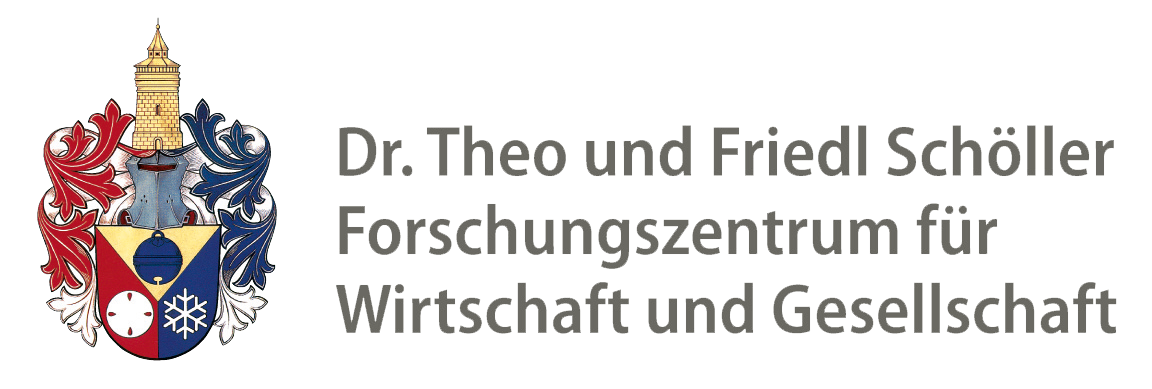Senior Fellows
-
John BessantUniversity of Exeter
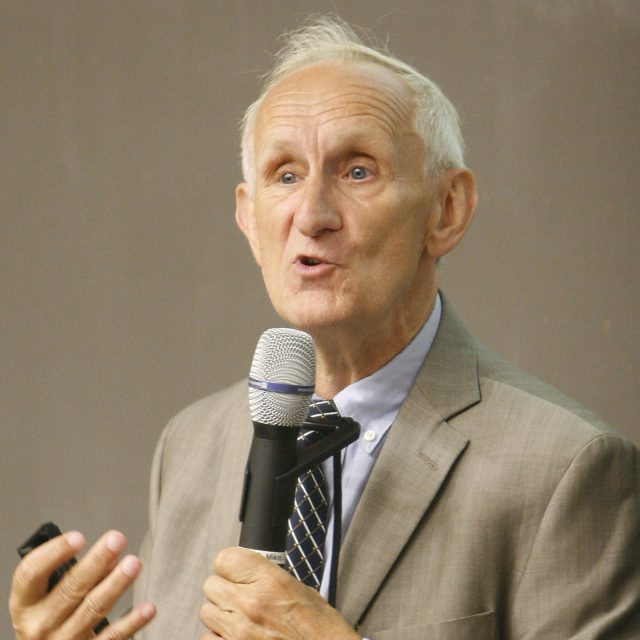
-
Thomas L. BrewerGeorgetown University

-
Adamantios DiamantopoulosUniversität Wien
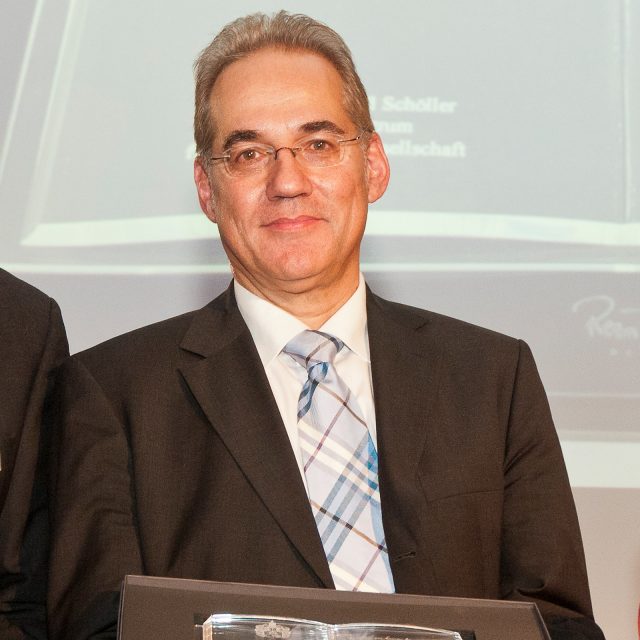
-
Imran RasulUniversity College London
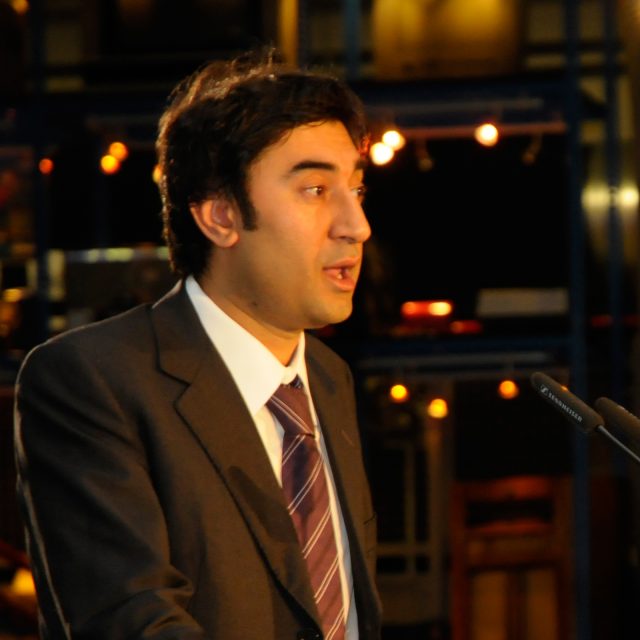
-
Carol S. SaundersUniversity of Central Florida
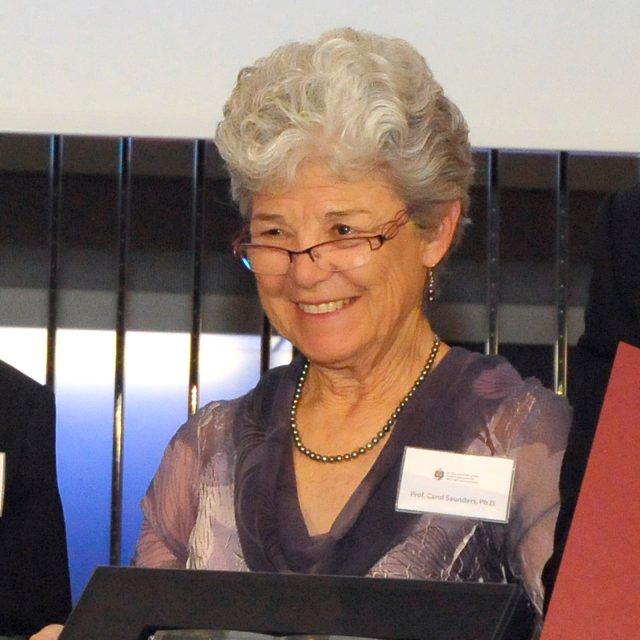
-
Ritu AgarwalUniversity of Maryland

-
Andy NeelyUniversity of Cambridge
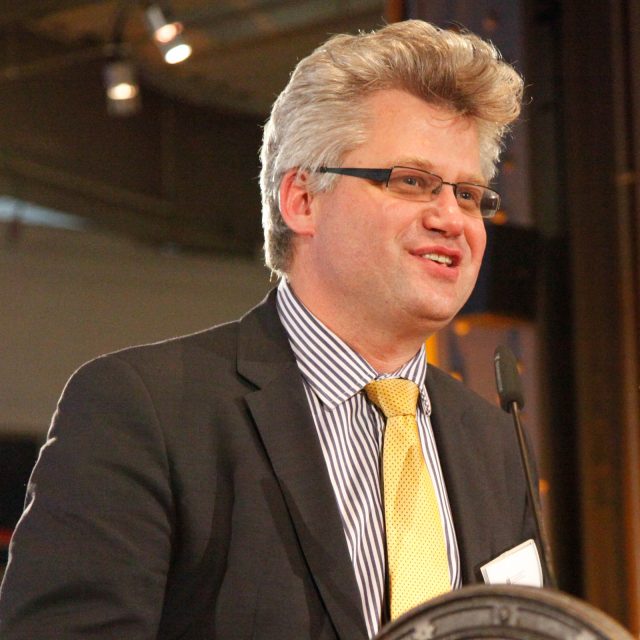
-
David BurgstahlerUniversity of Washington
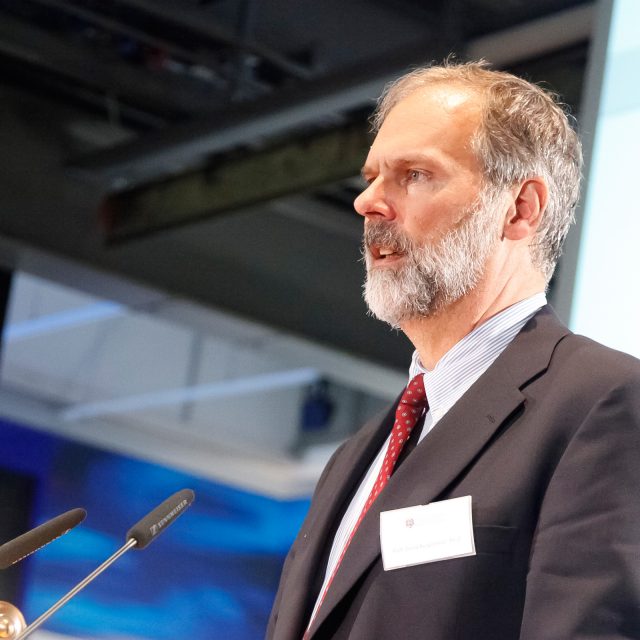
-
Shirley GregorAustralian National University
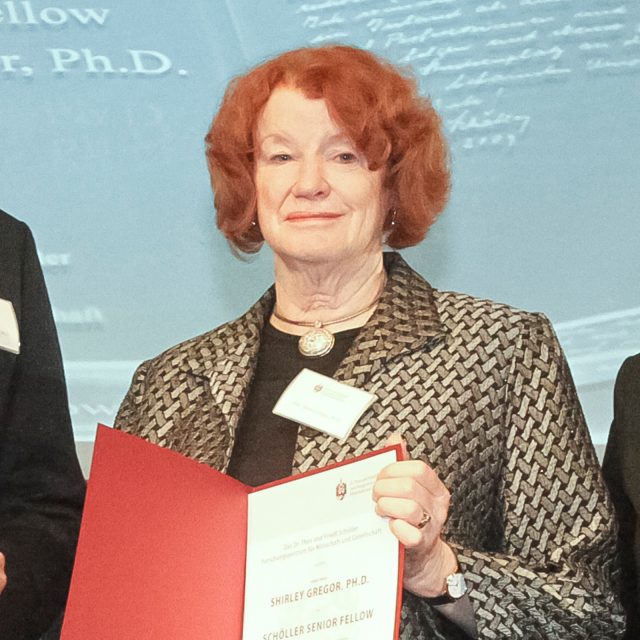
-
Alan R. HevnerUniversity of South Florida
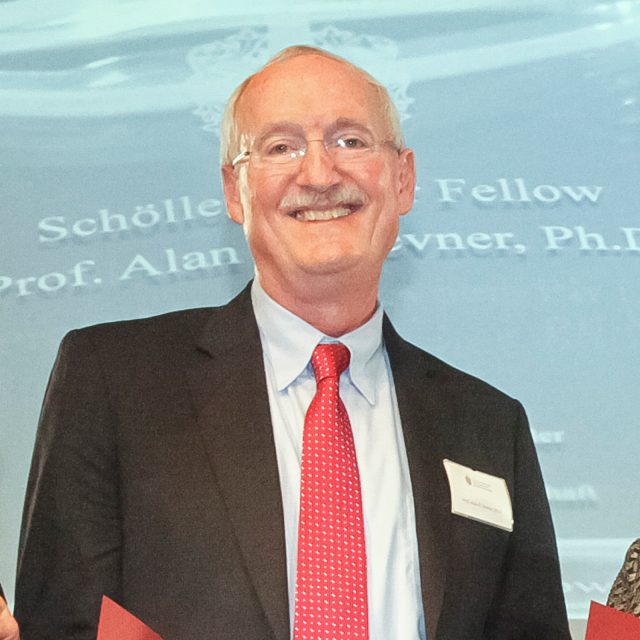
-
Ian P. KingUniversity of Queensland
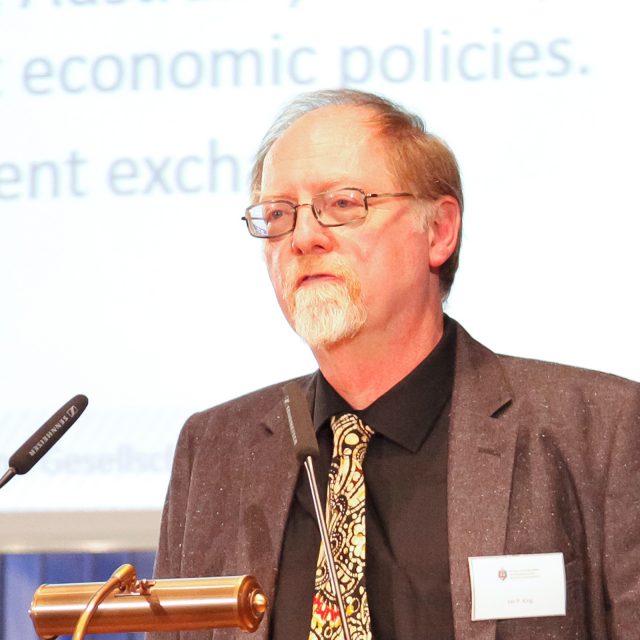
-
Nilmini WickramasingheLa Trobe University
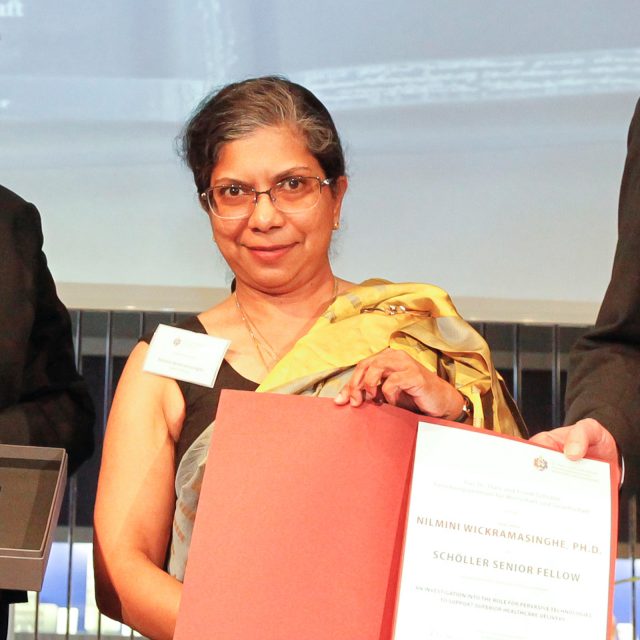
-
Evangelia DemeroutiTechnische Universiteit Eindhoven
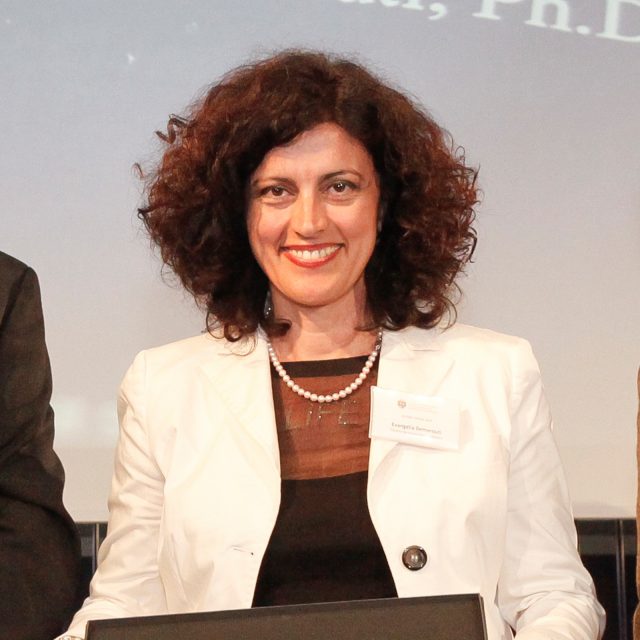
-
Samir ChatterjeeClaremont Graduate University
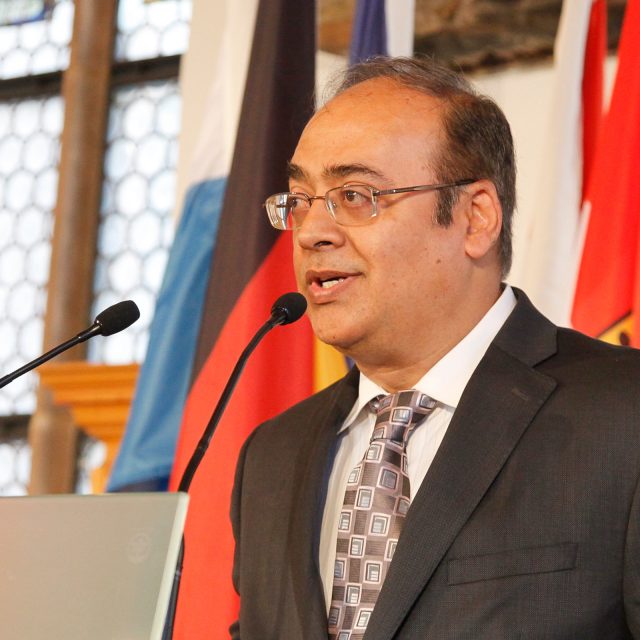
-
Jeffrey ParsonsMemorial University of Newfoundland
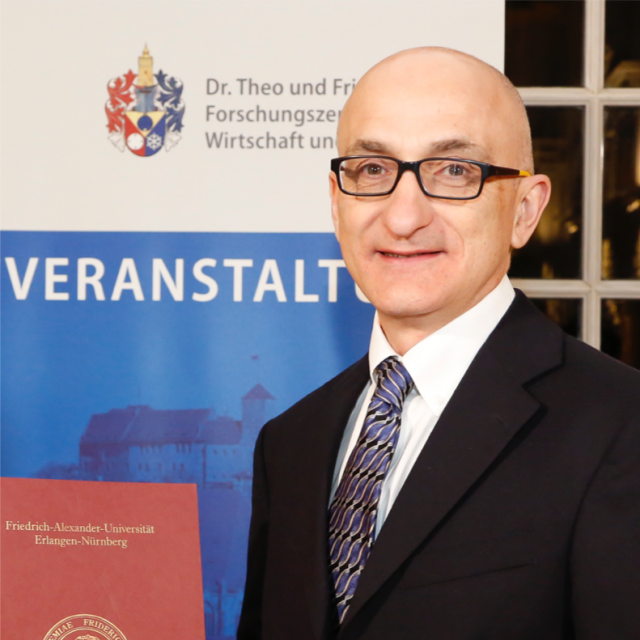
-
Miguel AnjosThe University of Edinburgh
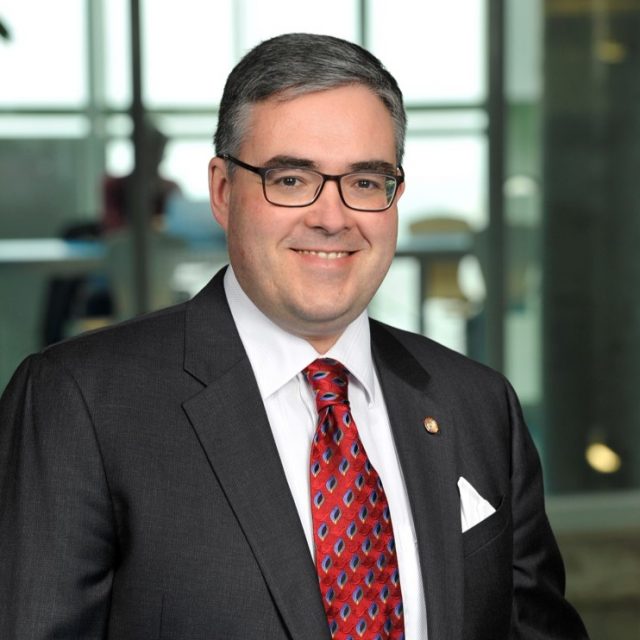
-
Martin SchreierWirtschaftsuniversität Wien
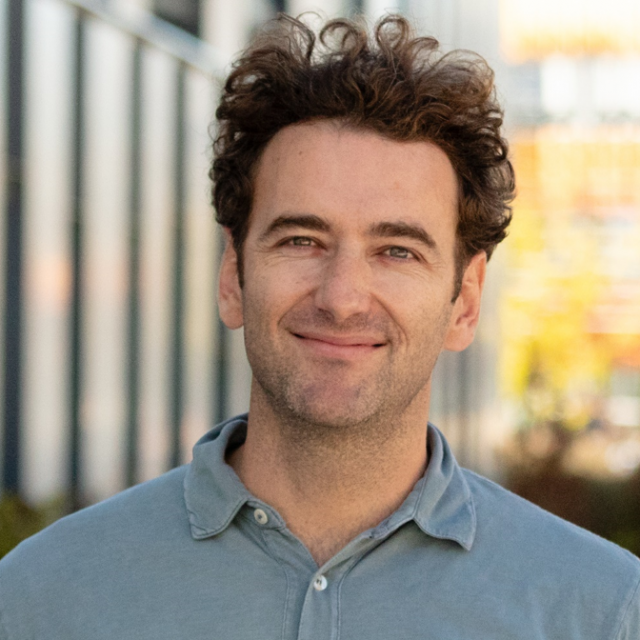
-
Jan vom BrockeUniversität Münster
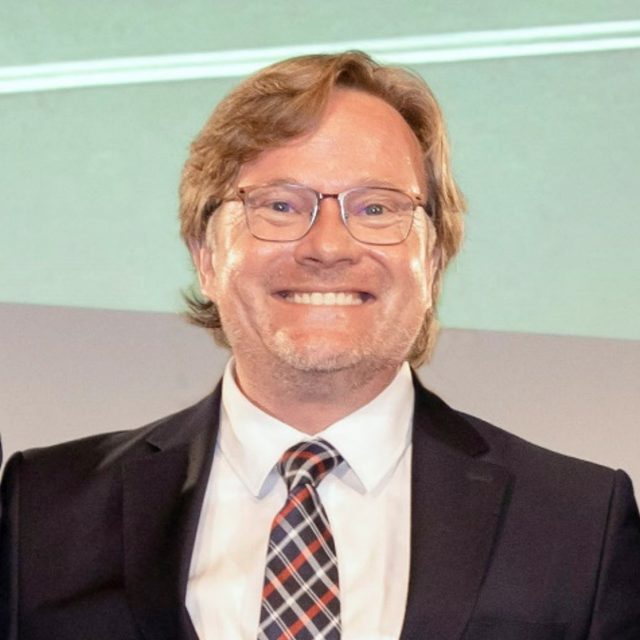
-
Richard T. WatsonUniversity of Georgia
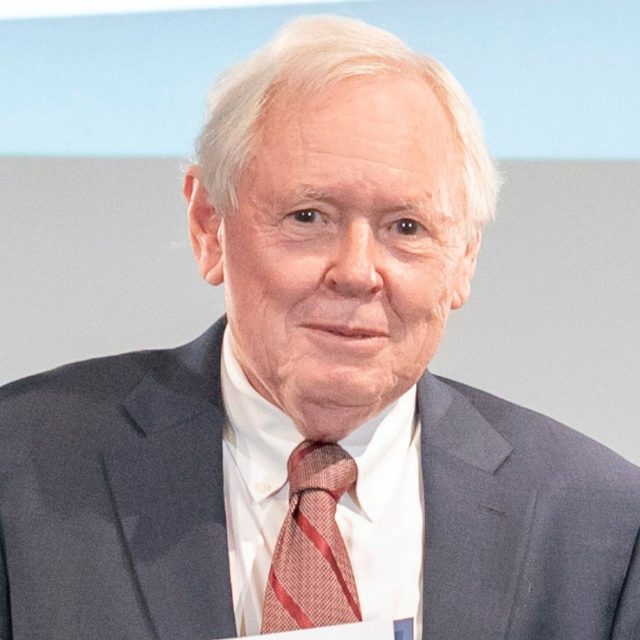
-
Jan Marco LeimeisterUniversität St. Gallen

John Bessant
Originally a chemical engineer, Prof. John Bessant, Ph.D. has been active in research and consultancy in technology and innovation management for over 25 years. He currently holds the Chair in Innovation and Entrepreneurship at Exeter University where he is also Associate Dean for Research and Knowledge Transfer.
In 2003 he was awarded a Fellowship with the Advanced Institute for Management Research and was also elected a Fellow of the British Academy of Management. He served on the Business and Management Panel of both the 2001 and 2008 Research Assessment Exercises and has acted as advisor to various national governments, companies and international bodies.
Innovation as Unusual
Innovation is essential for survival and growth – but exploiting its potential depends on our ability to organize and manage the process of change. Whilst we know a lot about how to do this under what can be called “steady state” conditions we still have much to learn about dealing with the challenge of discontinuity. When new technologies arrive, when new markets emerge, when surprising events shake the foundations of our normal world, we need new skills in enabling innovation.
Professor Bessant’s research will build on a shared learning process involving academics working alongside public and private sector organizations in a network of “innovation laboratories” trying to explore these challenges and develop tools to help meet them effectively.
Thomas L. Brewer
Prof. Thomas L. Brewer is on the faculty of the Georgetown University School of Business in Washington, DC. His publications on climate change issues include five articles in the refereed journal, Climate Policy, as well as chapters in books published by Cambridge University and The Brookings Institution, Elsevier and Routledge. He is the symposium editor for a forthcoming special issue of the refereed journal The World Economy, on issues at the intersection of trade and climate change.
He has made presentations on climate change issues at conferences at the Brookings Institution in Washington, DC, the Royal Institute of International Affairs (Chatham House) in London, the Centre for European Policy Studies (CEPS) in Brussels, the Economic and Social Research Institute (ESRI) in Tokyo, the European Union Commission and Parliament, COP/MOP climate change conferences, and numerous other venues. He has also published articles on international trade and investment issues in refereed journals and in the Oxford Handbook of International Business.
He has been a consultant to the World Bank, the United Nations Conference on Trade and Development (UNCTAD), and the Organization for Economic Cooperation and Development (OECD). He is an Associate Fellow of the Centre for European Policy Studies in Brussels and US Special Advisor for Climate Strategies in Cambridge, UK.
International Trade and International Climate Change: Issues at the Intersection
This research has two principal focal topics: Firstly, international competitiveness issues posed by an international economic environment with different carbon prices emerging from different climate policies, including comparative research on the EU and the US. Secondly, international transfers of climate friendly technologies. This work includes the international trade, investment and technology transfer practices of multinational firms and the government policies that encourage or inhibit them.
Adamantios Diamantopoulos
Prof. DDr. Adamantios Diamantopoulos holds the Chair of International Marketing at the University of Vienna, Austria. He is also Visiting Professor at the Faculty of Economics, University of Ljubljana, Slovenia. His work has appeared, among others, in the Journal of Marketing Research, Journal of International Business Studies, Journal of the Academy of Marketing Science, International Journal of Research in Marketing, MIS Quarterly, and Journal of Retailing. In the recent Handelsblatt ranking of business academics in Germany, Austria and Switzerland, he was ranked #3 in terms of current research productivity (2005-2009) and #4 in terms of lifetime research performance.
Consumers’ Responses to Country-of-Origin, Region-of-Origin, and Brand-Specific Cues: Cognitive and Affective Dimensions
Through a set of complementary studies, this project investigates the impact of alternative intonations (cognitive vs. affective) of country- and region-of-origin information on consumers’ brand perceptions, buying intentions and willingness to pay. Particular emphasis is placed on (a) the relative importance of cognitive and affective dimensions of origin designation on consumer responses, (b) the role that multiple (i.e. national and regional) consumer identities play in shaping such responses, and (c) potential variations across different product categories.
Imran Rasul
Prof. Rasul, Ph.D. obtained his Ph.D. in Economics from the London School of Economics in 2003. He is now a Professor at the University College London, co-director of the Centre for the Microeconomic Analysis of Public Policy at the Institute of Fiscal Studies, and research co-director of the Entrepreneurship Research Program of the International Growth Centre. His research interests include labor, development and public economics. From 2009 to 2013, he was a managing editor of the Review of Economic Studies journal. He was awarded the 2007 IZA Young Economist Prize and the 2008 CESIfo Distinguished Affiliate Award.
Understanding Illicit Behaviour
The research project analyses the causes of illicit behaviour in multiple studies. In a first project, the determinants of tax compliance in settings where individuals tax themselves by self-assessing their taxable income will be identified. In a second project, the causes of criminal behaviour and how they interlink with policing strategies related to the drug market will be investigated.
Carol S. Saunders
Prof. Carol S. Saunders, Ph.D. is Professor Emeritus at the University of Central Florida. She is a LEO award winner for lifetime accomplishments to the IS discipline and an Association of Information Systems Fellow. She served on a number of editorial boards, including a three-year term as Editor-in-Chief of MIS Quarterly. She also served as General Conference Chair of a premier Information Systems (IS) conference, ICIS. Her outstanding research status is reflected in over 50 publications in top-ranked Information Systems, Computer Science, Management and Communications journals. She held a Distinguished Fulbright Scholar Chair at the Wirtschaftsuniversität Wien (WU) and further research chairs in New Zealand, Singapore, and the Netherlands. In 2012, she was guest professor at the Institute of Information Systems at the FAU Erlangen-Nuremberg.
Understanding Information Overload
Using the Emotional-Cognitive Model (ECM) of overload the cognitive processing of stimuli created by new information or requests to adopt new technologies will be studied. ECM suggests that individuals’ cognitive systems differentially handle load as a function of cognitive and emotional schemata encoded in memory. Consequently, not everyone experiences overload in the same way – if at all. ECM may help explain the sometimes overwhelming cognitive and emotional consequences of dealing with information stimuli and requests to use new Information Technologies in today’s digital world.
Ritu Agarwal
Prof. Ritu Agarwal, Ph.D. is Professor and the Robert H. Smith Dean’s Chair of Information Systems at the Robert H. Smith School of Business, University of Maryland, College Park. She is also the founder and director of the Center for Health Information and Decision Systems. Dr. Agarwal has published over 90 papers in leading academic journals such as Information Systems Research, MIS Quarterly, and Management Science, and is a frequent speaker at national and international conferences. In 2019, she received the LEO Award of the Association for Information Systems (AIS). Her current research is focused on the digital transformation of healthcare, use of IT in clinical routines, health informatics, digital information privacy, and the role of technology in patient engagement..
The Digital Transformation of Healthcare: Technology-Mediated Mobile Social Engagement (MOSE) for the Management of Chronic Disease
As mobile devices become more integrated into daily lives and routines, they represent a striking opportunity for enhancing individual’s engagement with health management and wellness and reducing healthcare costs. Professor Agarwal’s research will investigate how social interactions with peers and healthcare professionals on a technology mediated platform empower and motivate older patients to engage in self-management of diabetes, and the effects of such interactions on health outcomes. The project will advance the science of the design, implementation, and evaluation of mobile device-based social engagement (MOSE) apps that can improve the health and wellbeing of patients with chronic conditions.
Andy Neely
Prof. Andy Neely, Ph.D. Andy Neely is Founding Director of the Cambridge Service Alliance and the Royal Academy of Engineering Professor of Complex Services at the University of Cambridge. He is widely recognized for his work on the servitization of manufacturing and strategic performance measurement. Previously he has held appointments at Cranfield University, London Business School, Nottingham University, where he completed his PhD and British Aerospace. He was Deputy Director of AIM Research – the UK’s management research initiative – from 2003 until 2012 and was elected a Fellow of the British Academy of Management in 2007, an Academician of the Academy of Social Sciences in 2008 and a Fellow of the European Operations Management Association in 2009.
Service Business Model Innovation: The Impact of Big Data
Much of the discussion about big data focuses on customer analytics, yet there is increasing evidence that big data can be used in business model innovation. Leading firms are already experimenting with how new sources of data might enable them to create new value for customers, supported by innovative service business models. In this project we will: (i) explore the scope and potential for big data to stimulate business model innovation in manufacturing firms making the shift to services; (ii) identify the practical and theoretical challenges in making better use of big data for business model innovation; and (iii) develop and test a methodology that can be used to stimulate creative thinking about the scope for new business models drawing on big data.
David Burgstahler
Prof. David Burgstahler, Ph.D. is Julius A. Roller Professor of Accounting at the University of Washington. Professor Burgstahler has been on the Foster School of Business faculty since 1981 and served as Associate Dean for Masters Programs from 2002-2004 and as Acting Dean from January to May 2005. He has also served as Vice-President for Publications of the American Accounting Association from 2007-2009. His research and teaching interests include earnings management, capital market reactions to earnings surprises, valuation, statistical methods in auditing, and research methods. He received the 2002 AAA-AICPA Notable Contributions to the Accounting Literature Award.
Size Management by European Private Firms to Minimize Disclosure and Audit Costs
David Burgstahler evaluates evidence of size management to avoid competitive costs of disclosure, as well as the cost of audits, for small, private firms in Europe. Disclosure and audit requirements are determined by firm size, as measured by total assets, sales, and number of employees. While there is substantial variation across jurisdictions, small firms are frequently not required to disclose a complete set of financial statements nor to have an audit. Thus, to the extent expanded financial statement disclosures and audits are costly, firms have incentives to manage their size to remain below the thresholds that impose audit and disclosure requirements.
Shirley Gregor
Prof. Shirley Gregor, Ph.D. is Professor of Information Systems at the Australian National University, Canberra, where she is a Director of the National Centre for Information Systems Research. Shirley Gregor’s research interests include the adoption and strategic use of information and communications technologies, intelligent systems, human-computer interaction and the philosophy of technology. Dr Gregor has published in journals such as MIS Quarterly, Journal of the Association of Information Systems, European Journal of Information Systems and Information Technology & People. Professor Gregor was made an Officer of the Order of Australia in June 2005 for services as an educator and researcher in the field of information systems and for work in e-commerce in the agribusiness sector. She is a Fellow of the Australian Computer Society and a Fellow of the Association for Information Systems.
Knowledge-Design-Innovation (KDI) Research Program
As Senior Schöller Fellows, Alan R. Hevner and Shirley Gregor work on a collaborative project with the goal of integrating research streams in the areas of knowledge, design, and innovation (KDI). They are currently working on a unifying framework for investigating and managing innovation. Drawing on their widely-cited publications on design science research methods, they propose a new framework for understanding innovation, the Knowledge Innovation Matrix (KIM). This framework is based on the two dimensions of knowledge (solution) and application (problem) maturity. In an expansion of their earlier work, they plan an extensive literature review of processes, theories and outcomes that characterize innovation in each of the four KIM quadrants.
The overall aim of the KDI research program is to develop the Knowledge-Innovation Matrix (KIM) for use in managing innovation processes and outcomes and bridging boundaries between research disciplines and stakeholders in business, academia, and government. The next step envisaged for the research program is to develop a tool for managing innovation. Subsequent steps will investigate academic-industry collaboration in innovation and governance policies for assessing and encouraging innovation at global and national levels.
Alan R. Hevner
Prof. Alan R. Hevner, Ph.D. is an Eminent Scholar and Professor in the Information Systems and Decision Sciences Department in the College of Business at the University of South Florida. He holds the Citigroup/Hidden River Chair of Distributed Technology. Dr. Hevner’s areas of research interest include information systems development, software engineering, distributed database systems, healthcare systems, and service-oriented computing. He has published over 200 research papers on these topics and has consulted for a number of Fortune 500 companies. Dr. Hevner received a Ph.D. in Computer Science from Purdue University. He has held faculty positions at the University of Maryland and the University of Minnesota. Alan R. Hevner is a Fellow of the American Association for the Advancement of Science (AAAS) and is a member of the Association for Information Systems (AIS), the Association for Computing Machinery (ACM), the Institute of Electrical and Electronics Engineers (IEEE), and Information Systems Research (INFORMS).
Knowledge-Design-Innovation (KDI) Research Program
As Senior Schöller Fellows, Alan R. Hevner and Shirley Gregor work on a collaborative project with the goal of integrating research streams in the areas of knowledge, design, and innovation (KDI). They are currently working on a unifying framework for investigating and managing innovation. Drawing on their widely-cited publications on design science research methods, they propose a new framework for understanding innovation, the Knowledge Innovation Matrix (KIM). This framework is based on the two dimensions of knowledge (solution) and application (problem) maturity. In an expansion of their earlier work, they plan an extensive literature review of processes, theories and outcomes that characterize innovation in each of the four KIM quadrants.
The overall aim of the KDI research program is to develop the Knowledge-Innovation Matrix (KIM) for use in managing innovation processes and outcomes and bridging boundaries between research disciplines and stakeholders in business, academia, and government. The next step envisaged for the research program is to develop a tool for managing innovation. Subsequent steps will investigate academic-industry collaboration in innovation and governance policies for assessing and encouraging innovation at global and national levels.
Ian P. King
Prof. Ian P. King, Ph.D. completed his PhD in Economics at Queens University (Canada), in 1989. He held positions at the University of Calgary and the University of Victoria (Canada), the University of Iowa (USA), the University of Auckland and University of Otago (New Zealand) and at the University of Melbourne (Australia). Currently, he is Professor of Macroeconomics at the University of Queensland (Australia). He is published in top journals such as Econometrica, the Review of Economic Studies, the Journal of Monetary Economics, and the Journal of Economic Theory. He was editor of the New Zealand Economic Papers and is currently the Chair of Board of the Australasian Macroeconomics Society.
Income Inequality, Unemployment, and Public Policy
The project studies how income inequality and unemployment are jointly determined, the effects of public policies on both, and will identify optimal policy settings. A quantitative model will be built where workers have different skills and firms create both high and low quality jobs. Policy variables such as unemployment benefits, job subsidies, and an income tax structure, with a government budget constraint, will be introduced to examine the influences of each of these variables, and how they can be harmonized. The funds will mostly be used as part of a graduate-level student exchange program, to foster collaborative research among German and Australian macroeconomists on this topic.
Nilmini Wickramasinghe
Prof. Nilmini Wickramasinghe Ph.D. is Professor and Optus Chair Digital Health at La Trobe University. She is also an honorary research professor at the Peter MacCallum Cancer Centre. Her research focuses on the design, development and application of Information Communication Technologies (ICTs) to effect superior, patient centric healthcare delivery. She collaborates with leading scholars at various premier healthcare organizations throughout Australasia, the US and Europe. She is well published with more than 300 referred scholarly articles, more than 10 books, numerous book chapters, an encyclopaedia, and a well established funded research track record.
An Investigation Into the Role for Pervasive Technologies to Support Superior Healthcare Delivery
The goal of this proposed study is to focus on how mobile applications and emerging technologies can be utilized to address the challenges faced by healthcare such as escalating cost pressures, an increasing aging population, an increasing prevalence of chronic diseases, and a move to a preventive care focus. Integral to these solutions is a patient-centric view in order to satisfy consumer expectations and provide high quality care. Specifically, the aim is to assess the usability, acceptability and functionality of a pervasive technology solution for patients including; patient compliance, patient and professional satisfaction and accuracy/benefits over standard care choices.
Evangelia Demerouti
Prof. Dr. Evangelia Demerouti, born in 1970, studied psychology at the University of Crete (Greece). After graduating (cum laude), she received a scholarship from the German Academic Exchange Office to work on her PhD. She obtained her PhD (cum laude, 1999) on the Job Demands-Resources burnout model from the Carl von Ossietzky Universität Oldenburg (Germany). In September 2009 she was appointed as full-time professor at Eindhoven University of Technology. Her research focuses on the processes enabling performance, including the effects of job characteristics, decision making, well-being, work-life balance and job crafting. She has over 200 publications and is associate editor of two journals.
Improving Both Performance and Well-Being Through Participative Methods of Performance Management: When and Why Does It Work?
The research project will examine whether that individual job crafting contributes to explain the performance-promoting aspect of management-techniques (ProMES) and to enhance employees’ innovative behavior and resources as well as their health and well-being. These assumptions will be tested using existing diary data and a new ProMES intervention. During the ProMES intervention, daily job crafting-behavior of employees will be measured using innovative IT instruments (i.e. smartphone app to track job crafting behavior). The goal is to expand the IT instrument for broader implementation of ProMES and job crafting in organizations. Supporting innovations with IT tools that provide feedback to employees about their performance and job crafting can enhance innovativeness of organizations and individuals.
Samir Chatterjee
Prof. Samir Chatterjee, Ph.D. Samir Chatterjee is Professor and Fletcher Jones Chair of Design, Technology & Management at CGU’s Center for Information Systems & Technology (CISAT) at the Claremont Graduate University. He is the founding director of IDEA Labs (Innovations Design Empowerment Applications Laboratory). In 2015, he was awarded the distinguished lifetime achievement award for contributions to Design Science Research. He has been a visiting scholar at Indian Institute of Management, (Ahmadabad & Kolkata), Kanwal Rekhi School of IT at IIT Mumbai, Alto University, Finland and CBS Copenhagen. Since 2017 Spring Semester, he is also an Adjunct Professor of Design & Innovation at USC Iovine & Young Academy.
Chatterjee’s initial research focused on technical algorithm design in high-speed networks such as congestion control in ATM networks, performance of TCP over asymmetric networks and graph models. In 2000-2001 he became active in VoIP area and helped the SIP standardization process which eventually led to the formation of ITU-T standard known as H.350 that is a standard feature in today’s Cisco and Polycom VC products. Today his work is highly transdisciplinary that crosses domains such as computer science, design thinking, persuasive technology, evaluation, health engineering and behavior psychology.
His entry into healthcare field has been via Telemedicine. Today he leads the emerging field of Persuasive Technology which is a stimulating interdisciplinary research field that focuses on how interactive technologies and services can be designed to influence people’s attitudes and support positive behavior change. His current projects include designing ICT and mobile solutions to address chronic disease management such as obesity/diabetes, heart-failure, oral health hygiene and he is also working closely with Loma Linda Medical center on a remote monitoring technology to assist Congestive Heart Failure patients.
Chatterjee received a B. Tech (Hons) in Electronics & Telecommunications Engineering (1988) from Jadavpur University, India; an MS (1991) and a PhD (1994) in Computer Science from the School of Computer Science, University of Central Florida . He was Co-founder & Chairman of VoiceCore Technologies Inc., which he formed back in 2001. In 2013, he founded DCL Health (Dr. Chatterjee’s Laboratories Health LLC), a wireless healthcare startup.
Towards a Healthier Living: Aging With Sensors and Internet-Of-Things Technology for Elderly Patients
In his research project, Samir Chatterjee aims to make both theoretical as well as practical advances to knowledge in the realm of aging with technology. The project will explore how best to design monitoring systems using latest sensor technology and Internet-of-Things (IOT) along with a focus on chronic disease self-management, message tailoring, goal setting as well as understanding how best to help the patients deal with behavior change issues. The project will use the design science research methodology and develop several assistive artifacts. The efficacy and utility of our design interventions will be tested through control group studies. .
Jeffrey Parsons
Designing Data Crowdsourcing Platforms to Increase Data Quality
Crowdsourcing is a popular way to engage people in data collection. A key challenge in crowdsourcing is ensuring that data are diverse enough to support unanticipated uses. This research is comprised of two parts. First, experimental studies will be conducted to test hypotheses that contributor expertise is negatively associated with data diversity, but unrelated to data accuracy. Second, based on these studies the research will propose and evaluate design features aimed at increasing the diversity of crowdsourced data. The results of this research will contribute to our understanding of how to design crowdsourcing platforms to maximize the ability to capture high quality, diverse data.
Miguel Anjos
Large-Scale Integration of Prosumers Into Electricity Markets and Systems Operation
The transition to renewable energies requires a major rethinking of society’s electricity networks and markets. A key development is the emergence of technology-enabled small-scale prosumers (who both produce and consume electricity), as is already happening in Germany and the UK, among others. The integration of prosumers into the electric energy system in (very) large numbers gives rise to important technical and economic challenges.
This project will develop novel mathematical models for prosumers to optimize their energy generation and consumption, for the grid operator to optimize the integration of prosumers, and for aggregators to optimize their flexibility offer in the energy markets.
Martin Schreier
His work has been published in premier journals such as the Journal of Marketing or Management Science, awarded with several best paper awards, and featured in international media outlets. He currently serves as an Associate Editor at the Journal of Marketing and is the Editor-in-Chief Elect of the International Journal of Research in Marketing.
University Knowledge Inside: How and When University-Industry Collaborations Make New Products More Attractive to Consumers
Firms increasingly collaborate with universities to find innovation success. This research project is the first to investigate how consumers perceive university-co-developed products. Initial evidence suggests a positive inferential process such that consumers experience products co-developed with a university to be more sophisticated and trustworthy compared to firm-internally developed products or products co-developed with merely another firm. Consequently, consumers might be more eager to purchase such products.
This research aims to advance our understanding of university-industry collaborations by showing how and when involving universities as an innovation partner might be beneficial for marketing purposes.
Jan vom Brocke
Process Science - The Interdisciplinary Study of Continuous Change
This research project studies the understanding of continuous change. We live in an age of change, such as climate change, globalization, the platformization, or societal movements. Yet, we struggle to understand or even influence change. Process science is a new interdisciplinary field that builds on the computation of rich digital trace data, such as sensor and social media data to identify change (descriptive process science); it analyses such data in a rich empirical context to better understand change (explanatory process science), and it also develops innovative solutions to influence change for the benefit of economy and society (prescriptive process science).
Prof. Richard Watson, Ph.D. is a Regents Professor Emeritus of the University of Georgia. He is a former President of the Association for Information Systems and was awarded its highest honor for his achievements in information systems (AIS Fellow). He was a visiting researcher at the Research Institutes of Sweden for about a decade. In 2021, the University of Liechtenstein awarded him an honorary doctorate. Professor Watson has published over 200 journal articles and written books on electronic commerce, data management, and energy informatics. His most recent book is Capital, Systems, and Objects. He recently accepted a partial appointment as Research Director with an Australian consulting firm.
Thermal Comfort as a Service
About 40% of all the energy consumed by buildings is used to provide thermal comfort to the occupants. However, sometimes rooms are heated when there unoccupied, or they are already warm enough, and vice versa for cooling. Thermal comfort is a range, not a fixed point. It can be managed across many rooms to minimize the cost of electricity while meeting occupants’ needs. Minimizing daily electricity costs requires sensitizing rooms to measure their thermal characteristics, determining their current and future occupancy, and predicting future electricity prices. We will prototype a system to manage thermal comfort as an energy company service.
Prof. Dr. Jan Marco Leimeister is Chair of Information Systems and Managing Director of the Institute for Information Systems (IWI-HSG) at the University of St. Gallen (Switzerland). He works on topics related to digital transformation, digital service innovation, crowdsourcing as well as the future of digital collaboration, digital learning, and the interaction between artificial intelligence and humans. He has received international awards for outstanding research, teaching and education. Since 2009, he has consistently ranked among the top 1 % of the most productive researchers in the field of business administration in German-speaking countries. His work is regularly published in A+ and Financial Times Top 50 journals. He is Editor in Chief of the Journal of Information Technology (JIT) and serves on the editorial boards of Information Systems Research (ISR) and Journal of Management Information Systems (JMIS), among others. He is Director of the Scientific Center for Information Technology Design (ITeG) at the University of Kassel. He is also Vice President of the Association for Information Systems (AIS).
GenAi and Knowledge Work – Is It Possible to Shape Your Own Work in a Self-Determined Way When Using GenAi?
The age of generative artificial intelligence (AI) is changing the way we learn, live, and work. Employees have great potential to simplify and change their tasks if they are motivated and empowered to do so. In occupational psychology, this phenomenon is known as “job crafting”. The research project is dedicated to an in-depth analysis of how the use of generative AI tools influences work behavior. This includes in particular the effects on productivity as well as on the development of employees’ skills. The possible cognitive relief through the use of generative AI is of particular importance. For this, the project is also using neurophysiological measurement methods to gain insights into cognitive processing during the use of AI. The aim is to develop a comprehensive understanding of how generative AI technologies can not only change the world of work, but also enrich it. The expected results promise to make a stimulating contribution to the current debate on the influence and integration of generative AI in the world of work.
Fellows
-
Friederike MengelUniversity of Essex
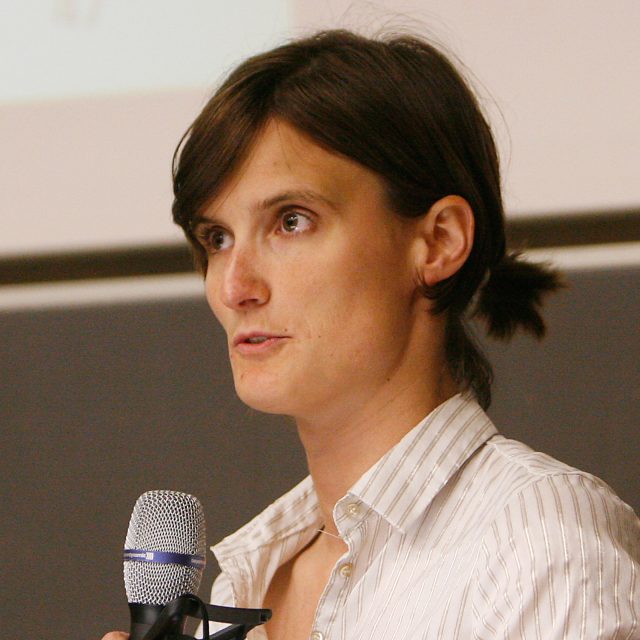
-
Jonas PuckWirtschaftsuniversität Wien
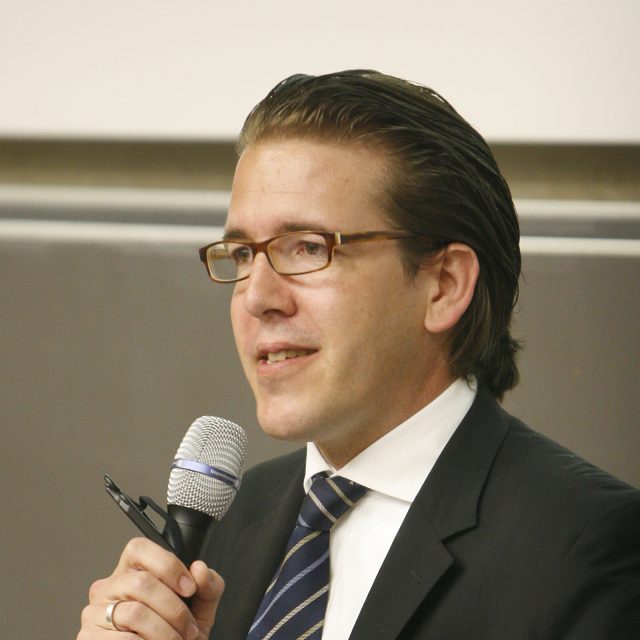
-
Sanjay ChughOhio State University
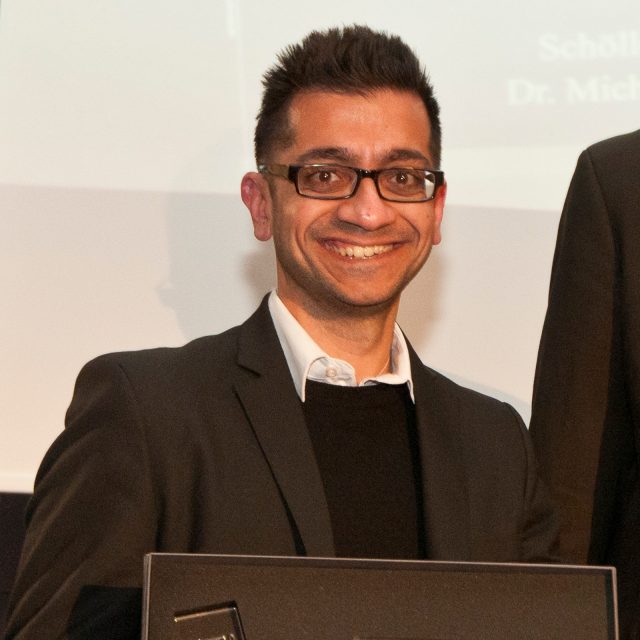
-
Michael GrottkeFAU Erlangen-Nürnberg
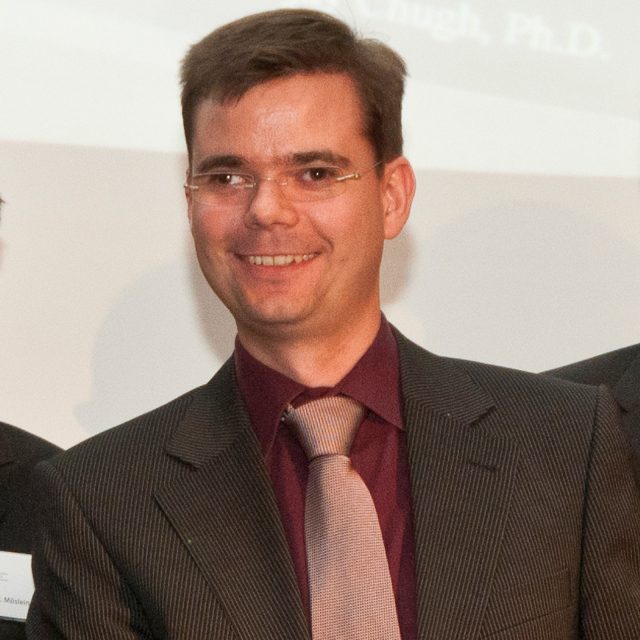
-
Andreas KönigUniversität Passau
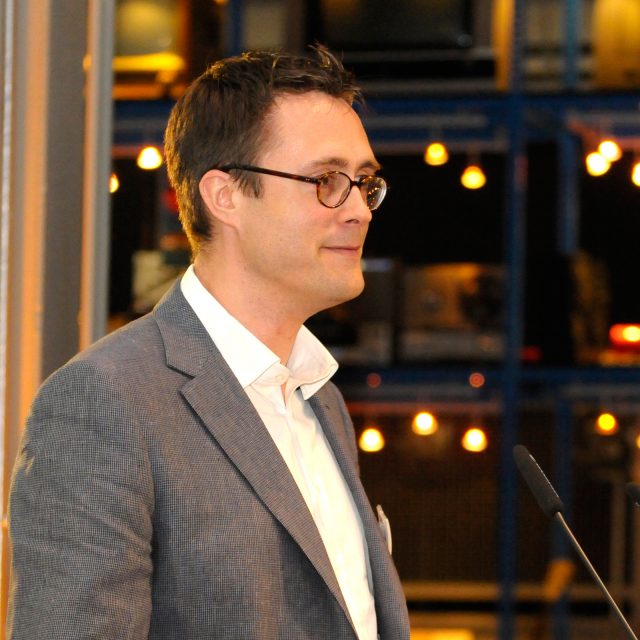
-
Andrea WechslerHochschule Pforzheim
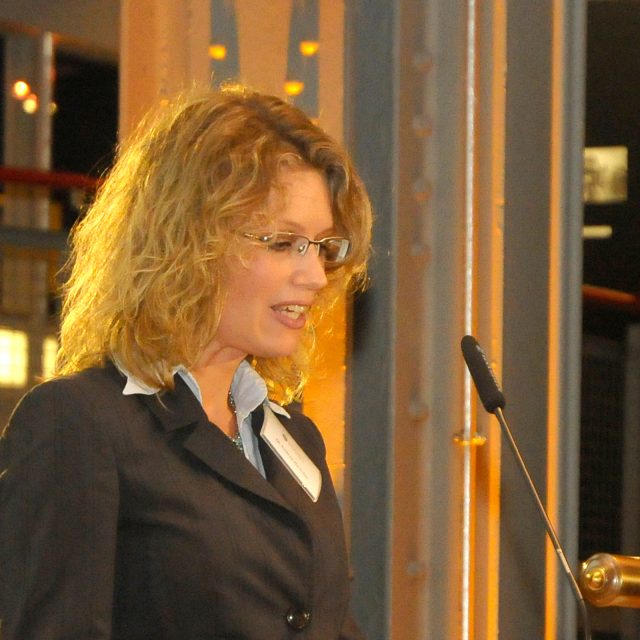
-
Hossein S. ZadehDefence Science & Technology Group
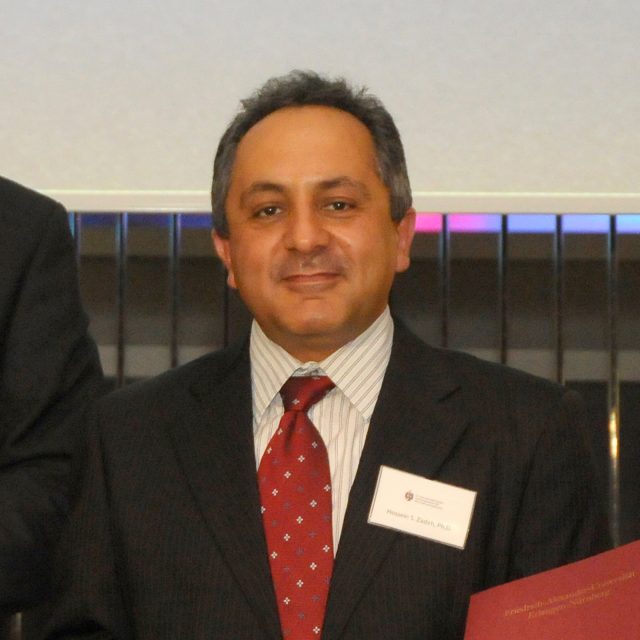
-
Nadja DwengerUniversität Hohenheim
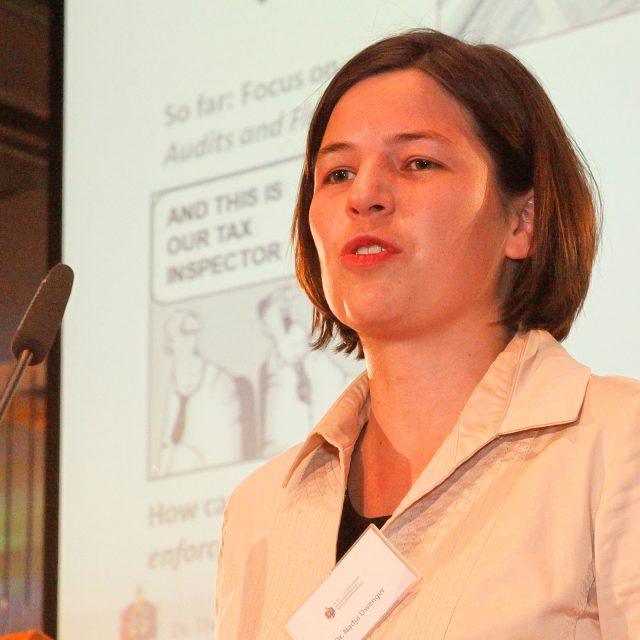
-
Martin EmmertUniversität Bayreuth
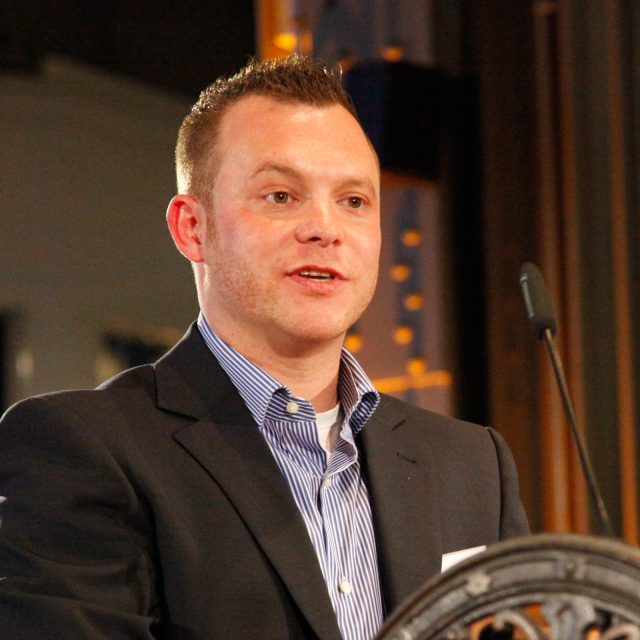
-
Julia KlierUniversität Regensburg
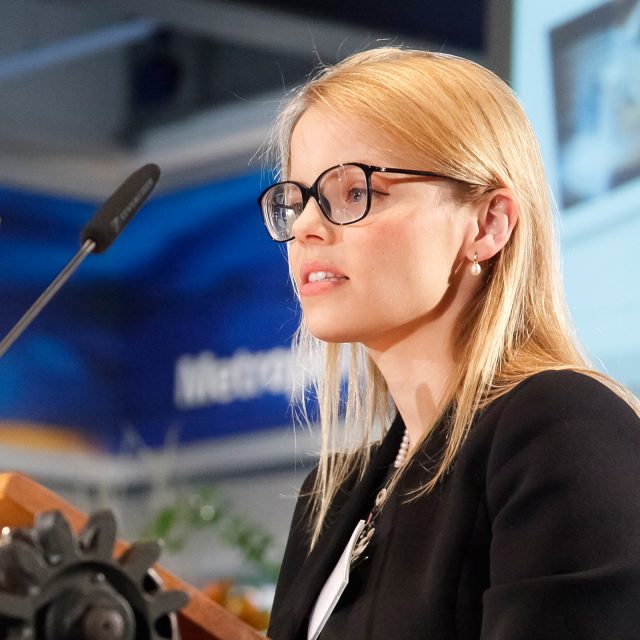
-
Tassilo SchusterHochschule Neu-Ulm
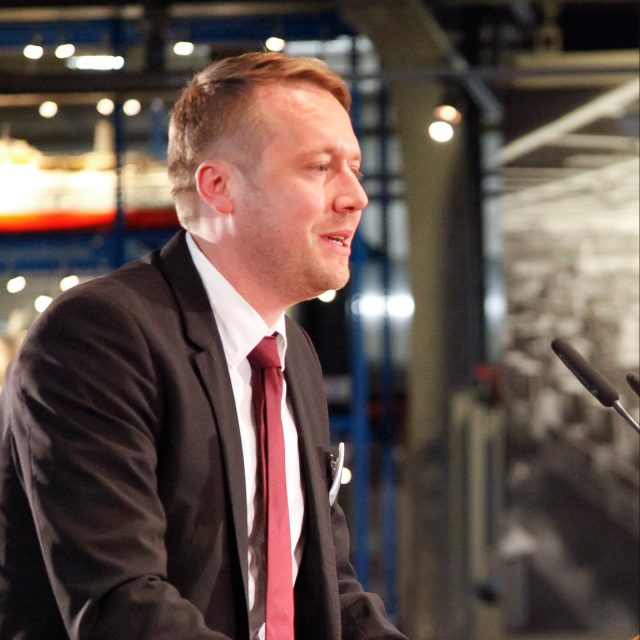
-
Michael StichTUM Campus Heilbronn
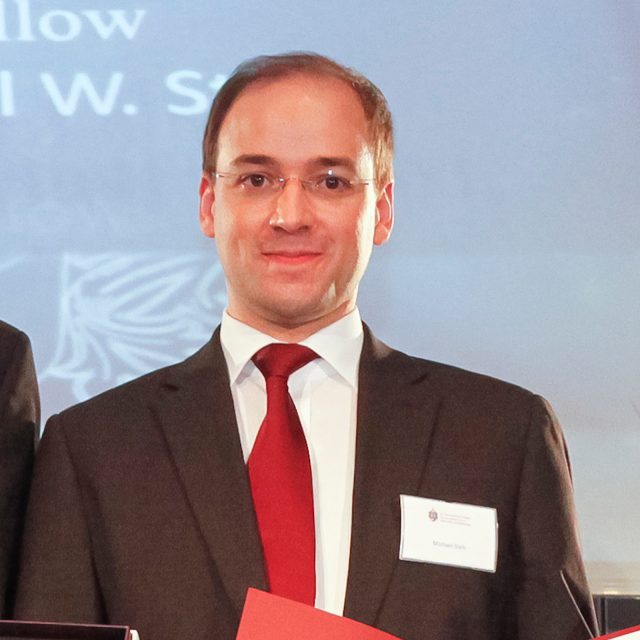
-
Alexander BohnertHochschule München
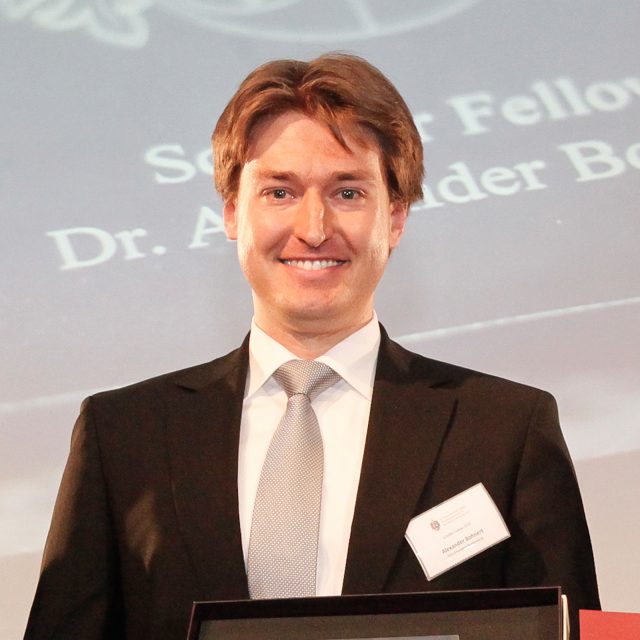
-
Christian PescherUniversidad de los Andes
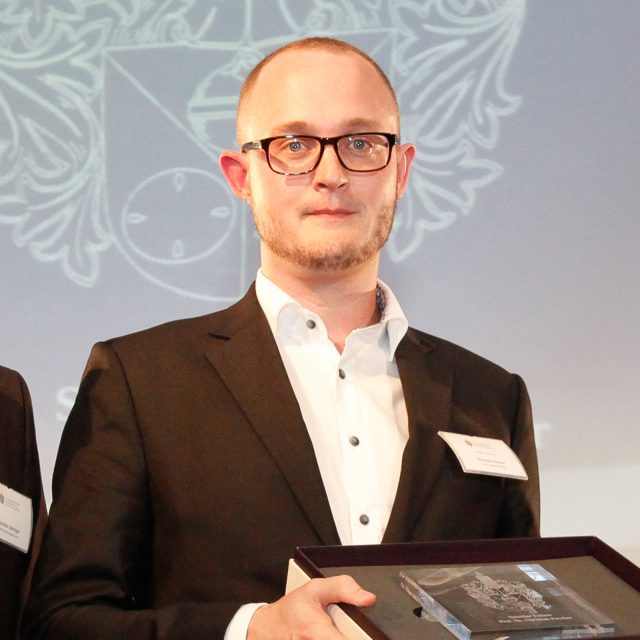
-
Agnis StibeEM Normandie Business School
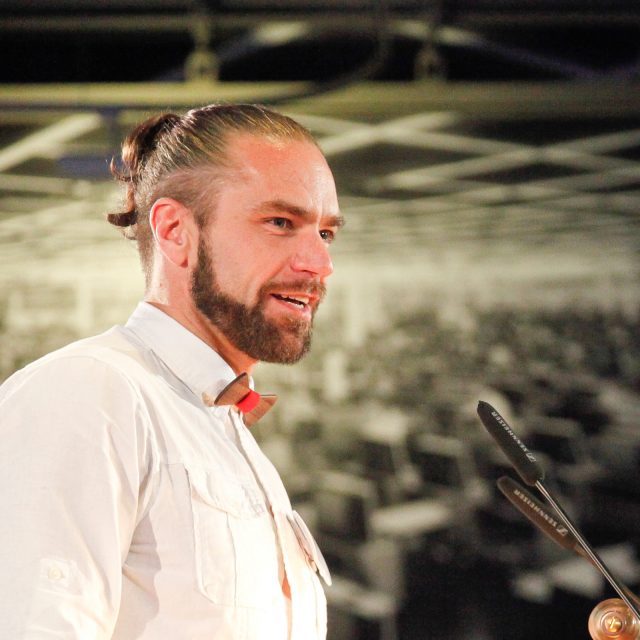
-
Lorenz Graf-VlachyTU Dortmund
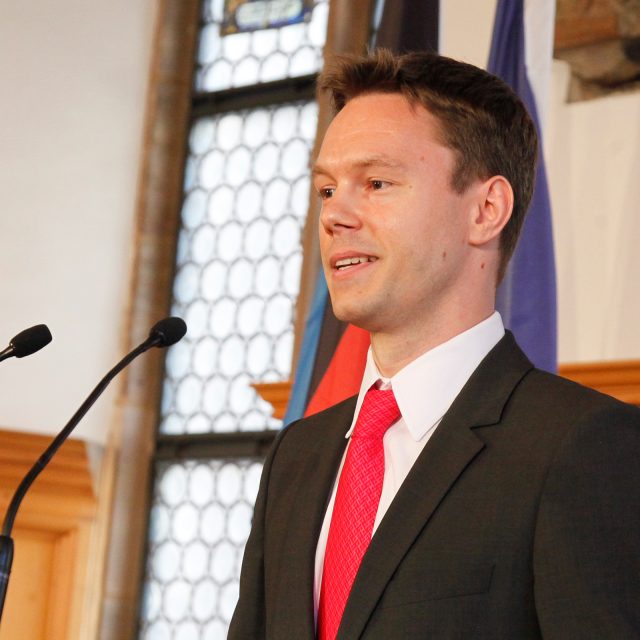
-
Tim Alexander HerbergerAndrássy Universität Budapest
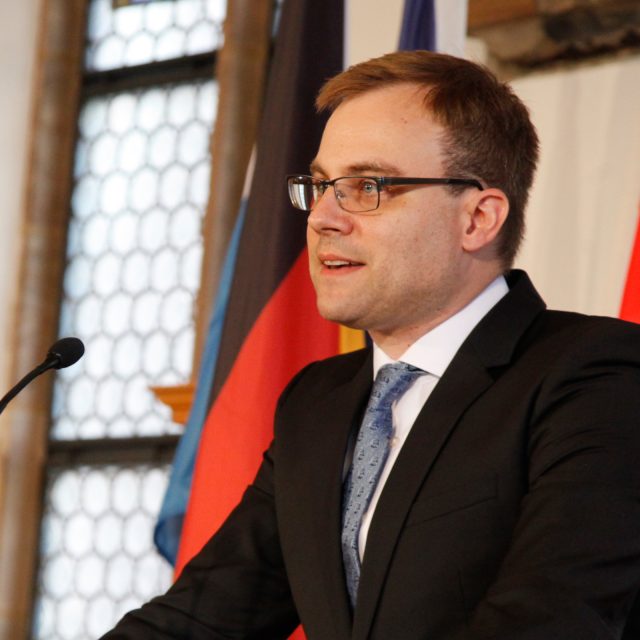
-
Cynthia SendeHochschule Hof
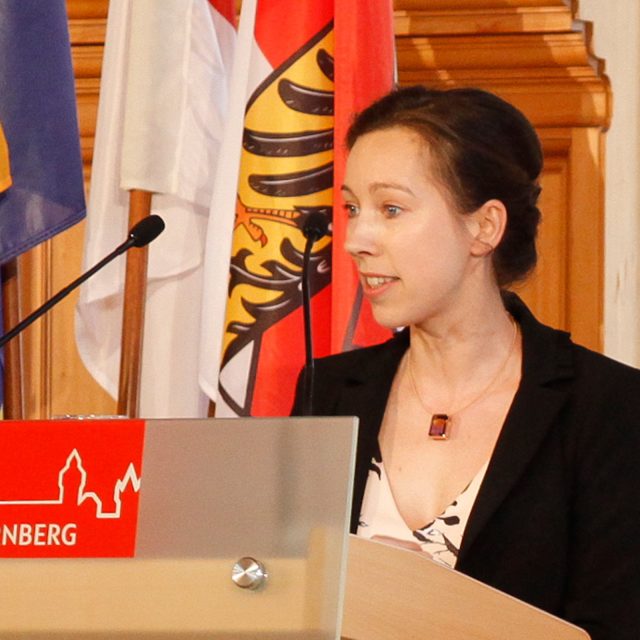
-
Julia FehrerUniversity of Auckland
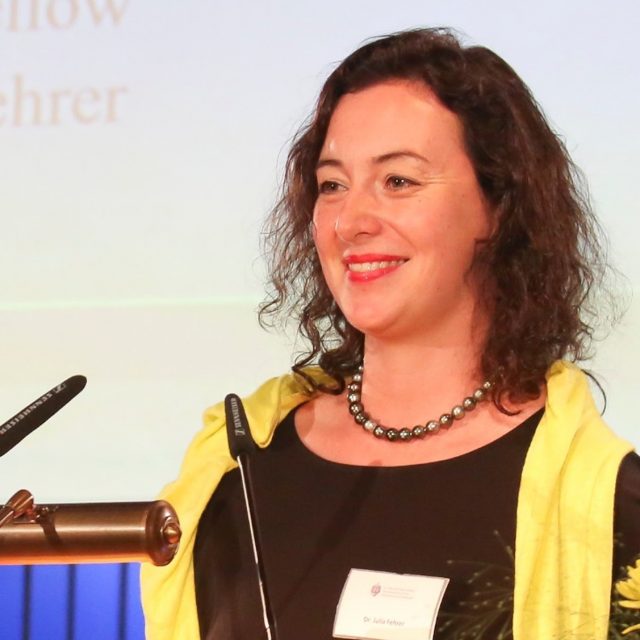
-
Jacob HörischLeuphana Universität Lüneburg
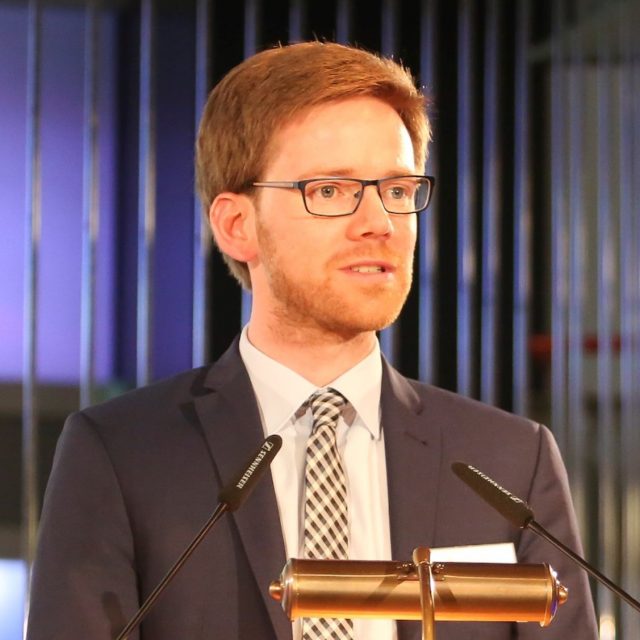
-
Julia KraftUniversität Potsdam
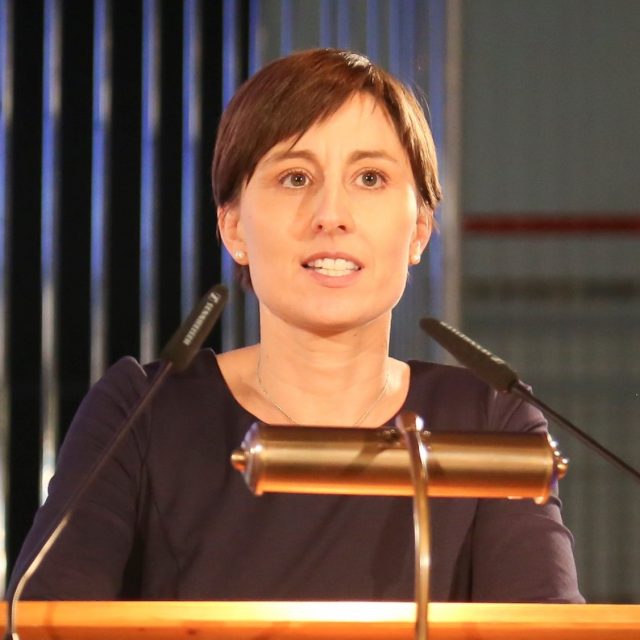
-
Daniel KühnleUniversität Duisburg-Essen
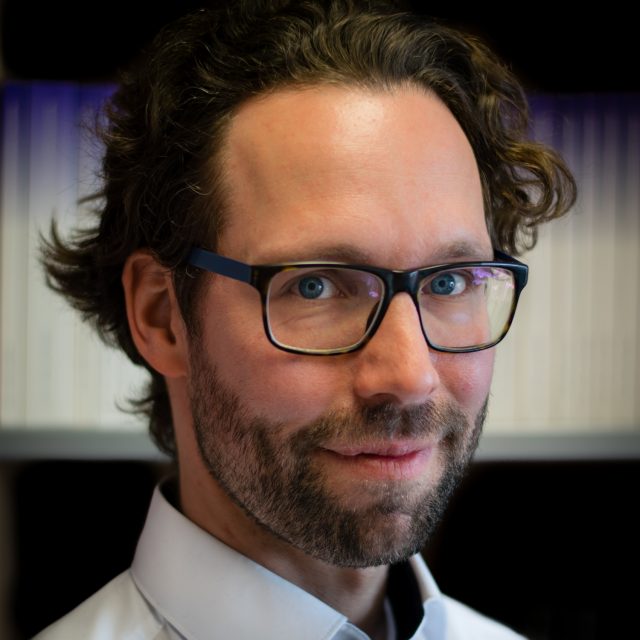
-
Harry van der WeijdeNetherlands Organisation for Applied Scientific Research (TNO)
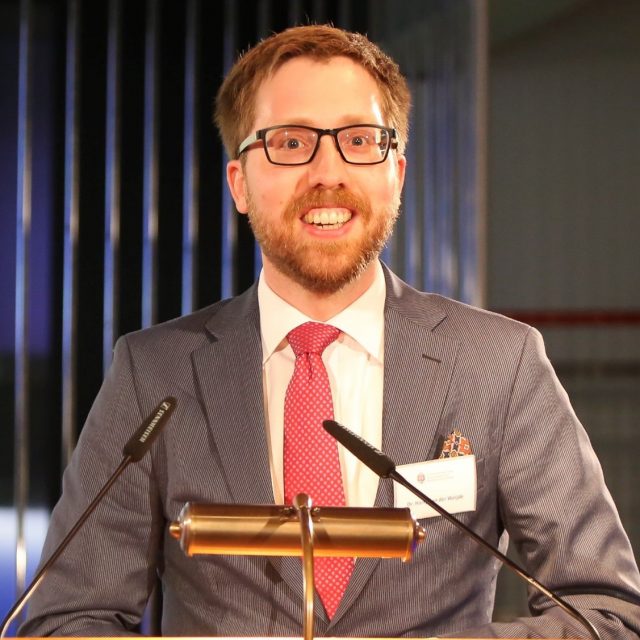
-
Christian BaccarellaUniversität der Bundeswehr München
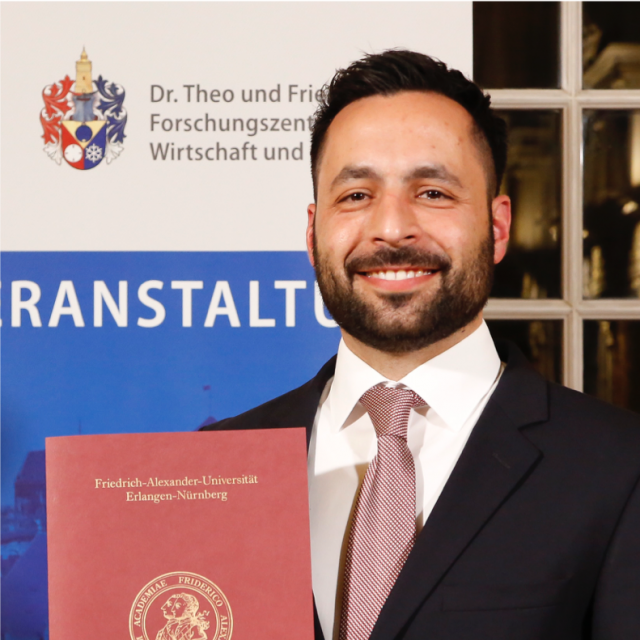
-
Joachim HüffmeierTU Dortmund
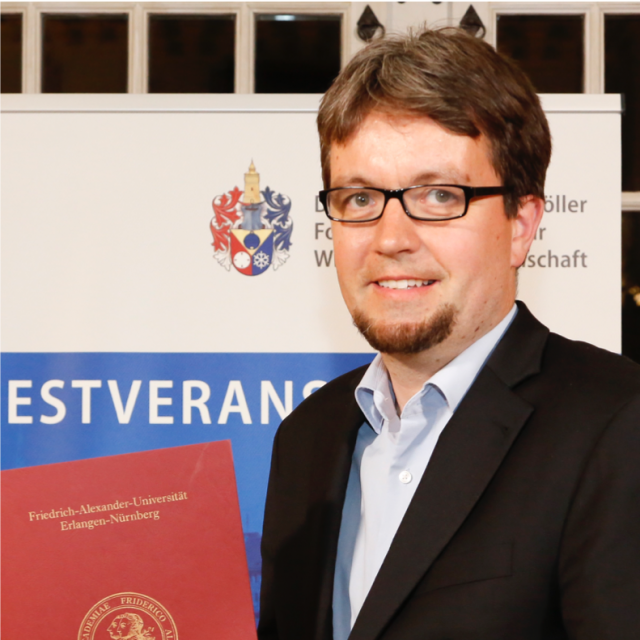
-
Yipeng LiuHenley Business School
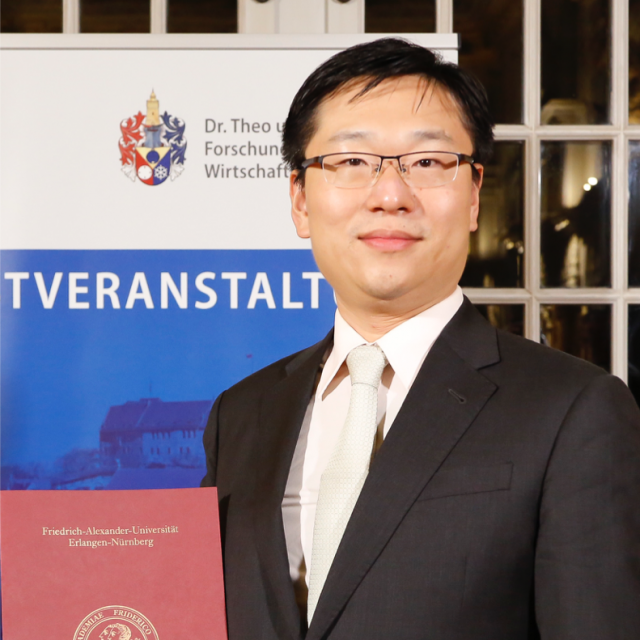
-
Nivedita AgarwalUniversität Stuttgart
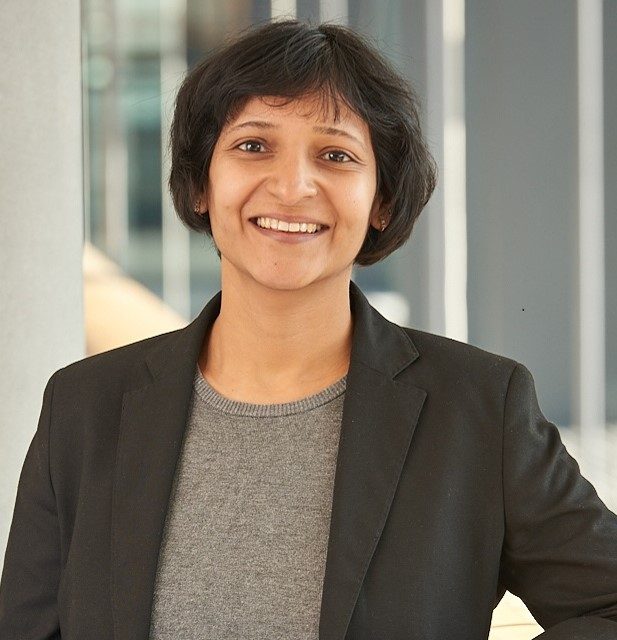
-
Steffi HaagHHU Düsseldorf
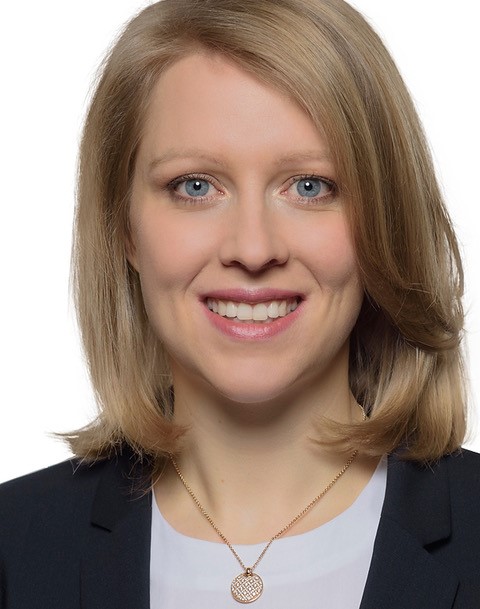
-
Daniel SchnurrUniversität Regensburg
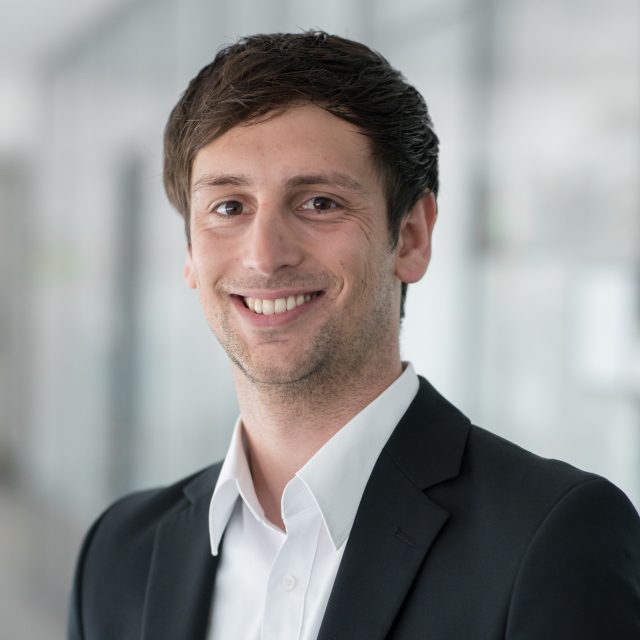
-
Hannah Trittin-UlbrichLeuphana Universität Lüneburg
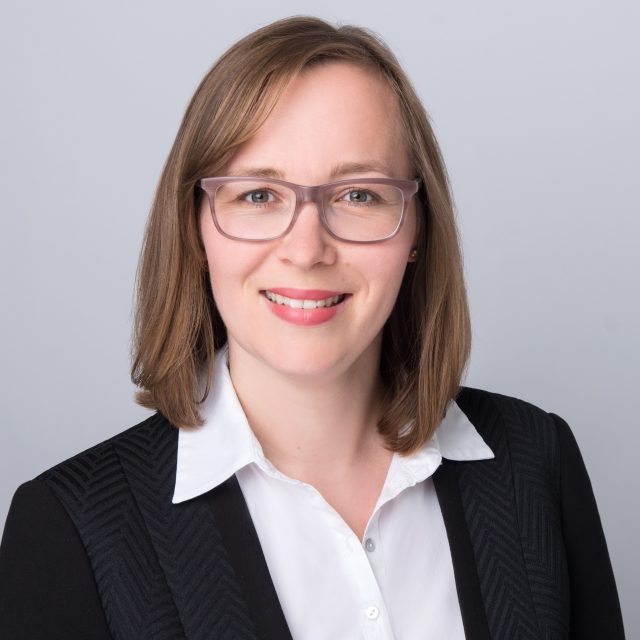
-
David BartlitzUniversität Paderborn
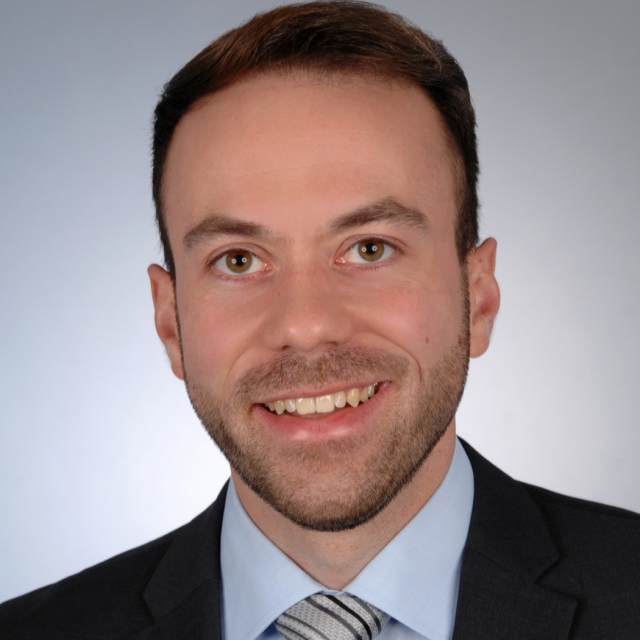
-
Jonas EgererFAU Erlangen-Nürnberg
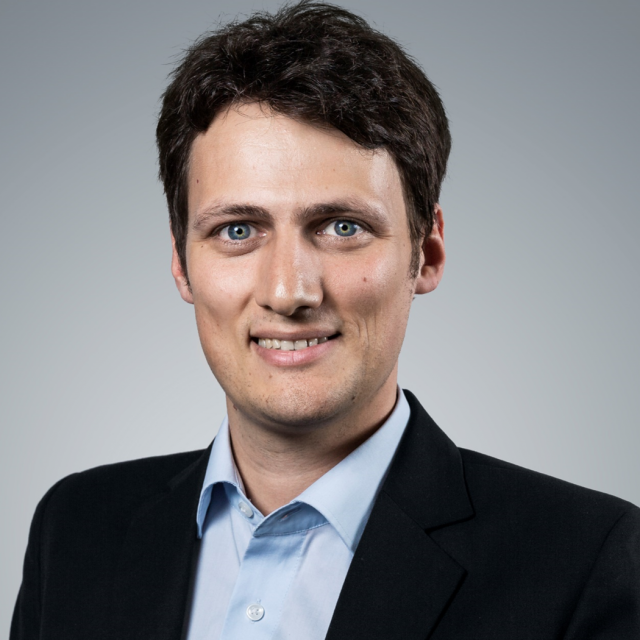
-
Christian MaierUniversität Bamberg
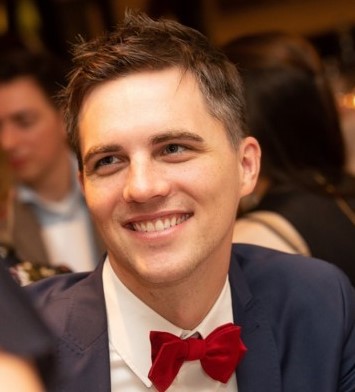
-
Almasa SarabiUniversiteit van Amsterdam
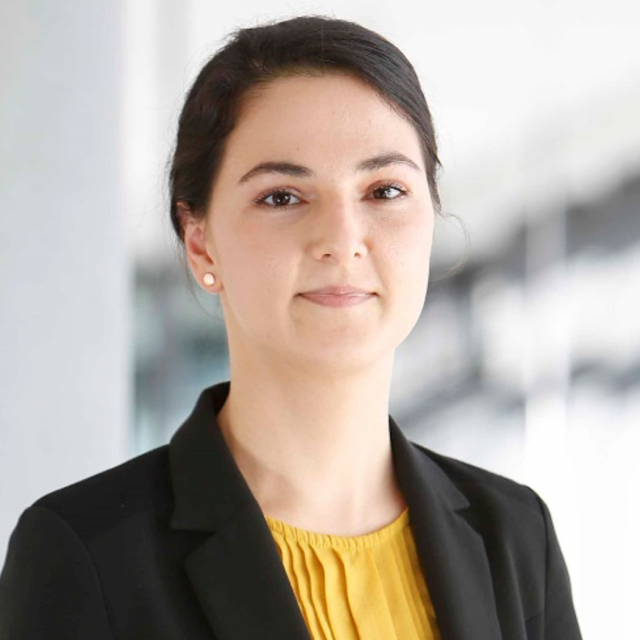
-
Michael WeberChicago Booth
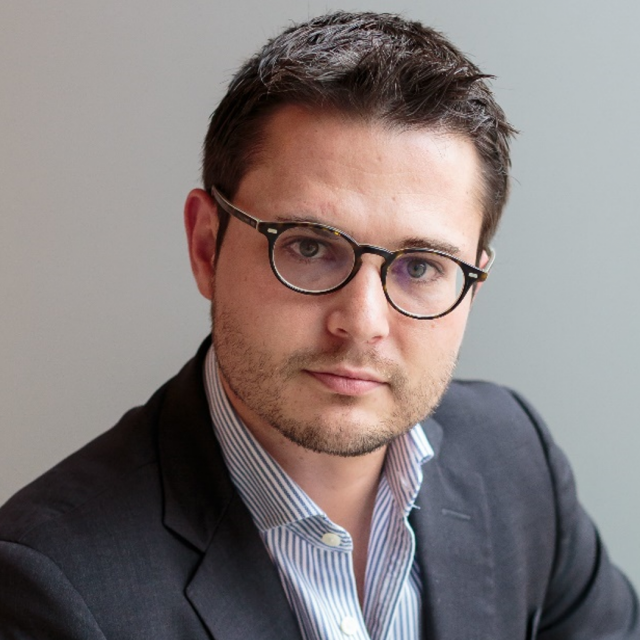
-
Hendrik BirkelFAU Erlangen-Nürnberg
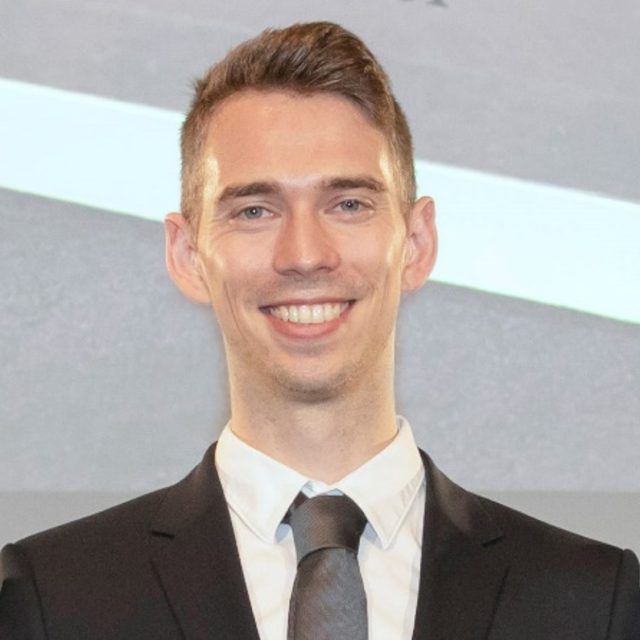
-
Katharina EbnerFAU Erlangen-Nürnberg
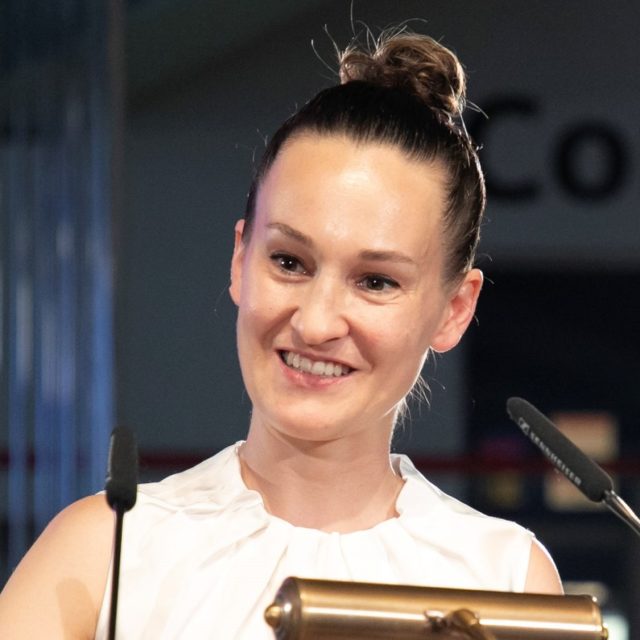
-
Markus NaglerFAU Erlangen-Nürnberg
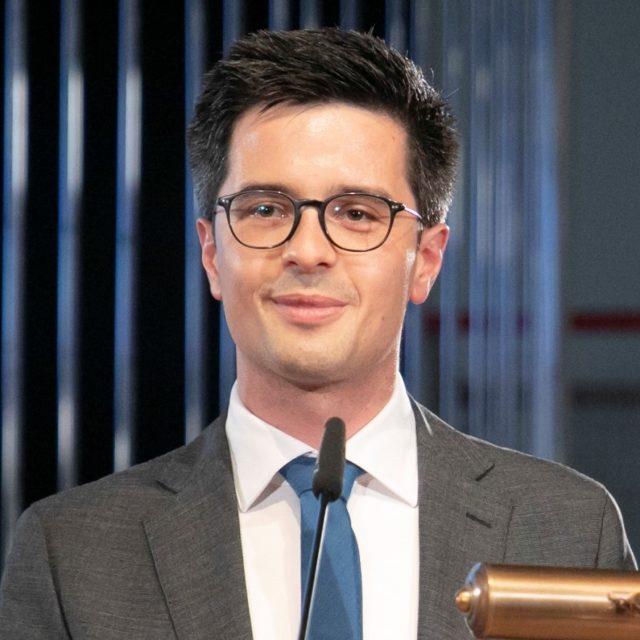
-
Simon ReifFAU Erlangen-Nürnberg
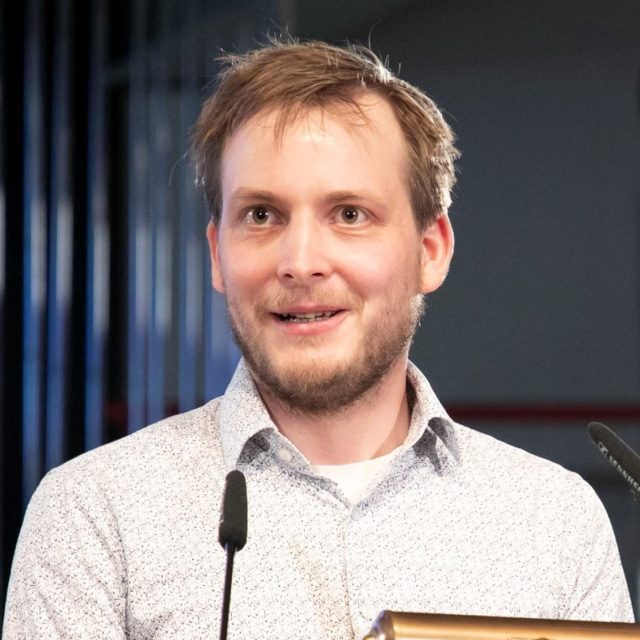
-
Sena CoşkunFAU Erlangen-Nürnberg
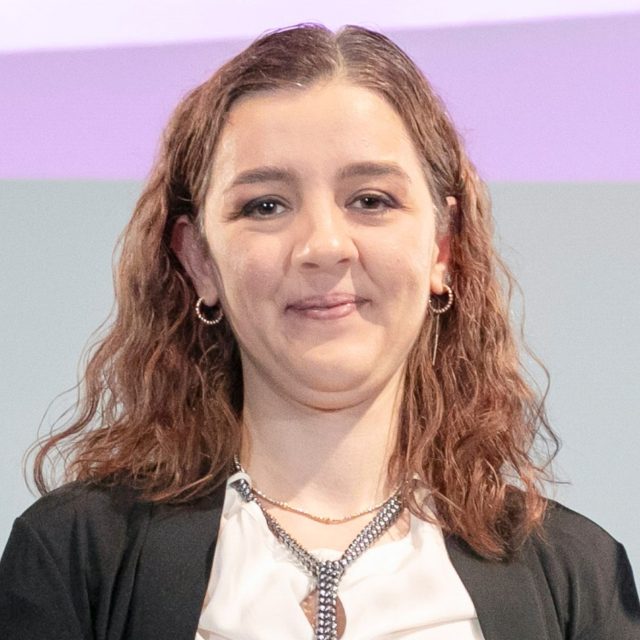
-
Sebastian JungeFAU Erlangen-Nürnberg
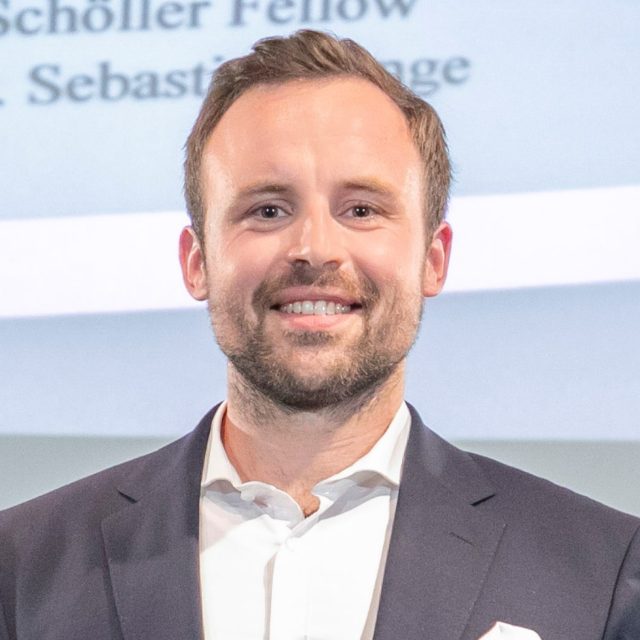
-
Benjamin LochnerFAU Erlangen-Nürnberg
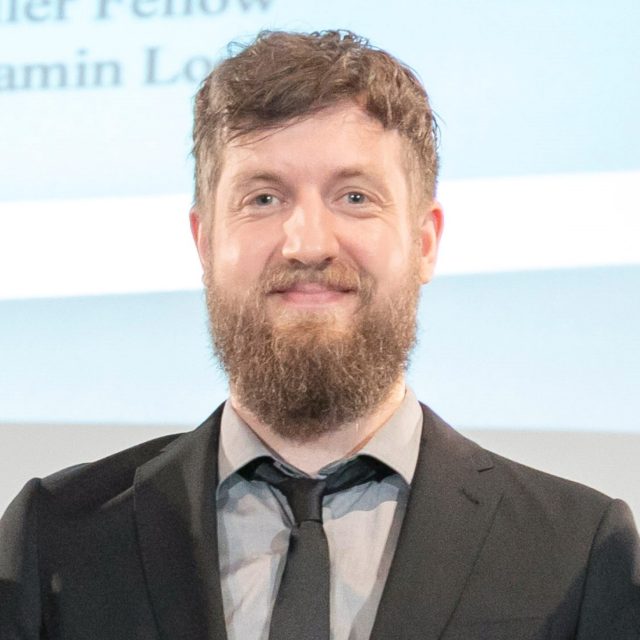
-
Lukas MaierWirtschaftsuniversität Wien
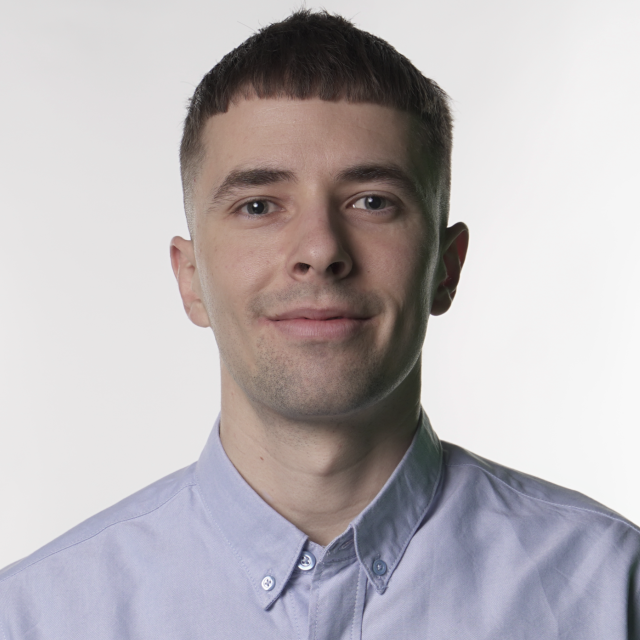
-
Georg ReischauerWirtschaftsuniversität Wien
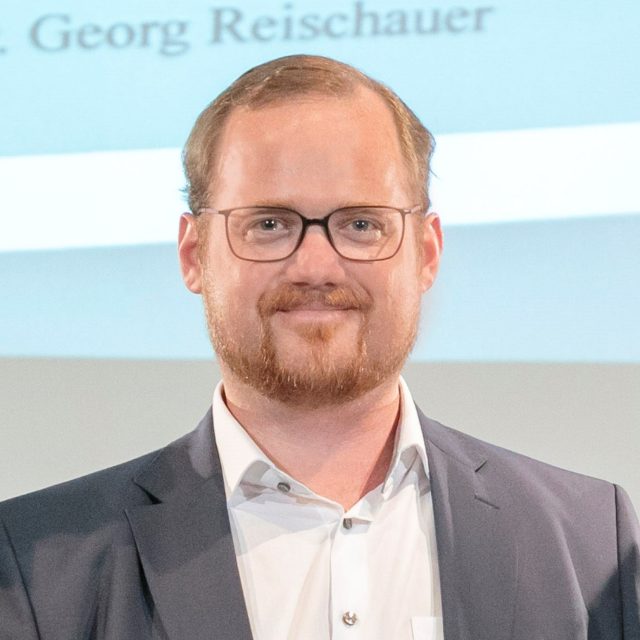
-
Lisa HandkeFAU Erlangen-Nürnberg

-
Fabian KosseJMU Würzburg

-
Christopher MünchFAU Erlangen-Nürnberg

-
David SchindlerFAU Erlangen-Nürnberg

-
Sven WeinzierlFAU Erlangen-Nürnberg

Friederike Mengel
Her major fields of research include (evolutionary) game theory, social networks and models of limited rational behavior. Her work has been published in journals across all academic fields like Games and Economic Behavior or the Journal of Theoretical Biology. She was a guest researcher at Cornell University, MPI Jena, New York University, Santa Fe Institute and others.
Procedural Fairness
In the course of the project, neuronal reactions to mechanisms of distribution of limitedly available resources are to be examined. As many studies display, the acceptance of “unfair” allocations highly correlates with the processes through which they materialize. It is unclear whether the acceptance of fair institutions is caused by the satisfaction with the result or by the fact that individuals repress their dissatisfaction with the result due to the nondiscriminatory routine.
The answer to this question considerably affects the attractiveness of such mechanisms when seen from a welfare perspective and the question whether procedural fair institutions are stable in the long term.
Jonas Puck
Foreign Market Intelligence of Immigrants as Source of International Companies’ Competitiveness
Currently, there are 15 million people with migration background living in Germany. In public controversy, they are usually seen as a problem or at least as a challenge for society, politics and economy. In other countries, such as the USA, Australia, UK or Canada, immigrants are often seen from a different perspective. Immigrants are often important economic factors in various regions.
One of their particular characteristics is their expert knowledge of their home country which companies can make use of for their international business activities. The project’s purpose is to make a contribution to gaining knowledge about the assignment of immigrants in order to enhance the companies‘ international competitiveness.
Sanjay Chugh
Matching, Selection, and Labour Markets
The workhorse framework for studying unemployment has been the “search and matching” model. While matching analysis has many realistic predictions, other margins of adjustment are also important for quantitatively understanding labor markets, especially following deep recessions. This project incorporates “selection effects,” which previous work has shown is quantitatively descriptive, into matching analysis. The central idea of the “selection model” is that individuals with whom firms match may not have suitable skills and thus may not be “selected,” or hired, to work. The conjunction of models describes the view that matching and hiring are distinct activities, a clear idea that has not been formalized in quantitative models. The fully-developed framework will be tested using U.S. and German data.
Michael Grottke
Why Software Fails - And How to Deal with Software Failures
We all depend on the correct behavior of software-controlled systems. Therefore, software faults need to be dealt with in an adequate way. The techniques appropriate for a specific fault depend on its characteristics. For example, faults like memory leaks cause the accumulation of internal error conditions within the running system. Stress tests can boost the detection of such “aging-related” faults. In this project, faults contained in open source software will be analyzed. The proportions determined for the various fault types can for example be used by software testers as a benchmark to reveal an insufficient amount or quality of certain tests.
Andreas König
How Do the World Views of Ceos Influence the Strategic Behavior of Firms? - A Conceptual Metaphoric Approach to the Upper Echelons Theory
The goal of this research project is to decrypt the core issue of the Upper Echelon-research: “How do the world views of top managers – that is the deeply rooted basic cognitive structures and assumptions of management – influence the strategic behavior of companies they run”. The study uses the approach, which originates from the cognitive linguistics, of the conceptual metaphor theory, which assumes that the world view of a person manifests itself in the use of certain metaphors. The text sources for the analysis of CEO-world views are the transcripts of the analysts’ conference of several hundred CEOs in the pharmaceutical industry.
Andrea Wechsler
The Transformation of Law Implementation in Europe Using the Example of Antitrust
The main objective of the research project is the investigation and assessment of the transformation of law enforcement in European antitrust law. Disclosure and assessment of the transformation processes and their implications from a dogmatic, legal-theoretical and institutional as well as a procedural and substantive perspective is intended. The scientific and social relevance lies in the consideration whether and how the dynamics of European legal harmonization, the economisation, and privatization require a new internal system of antitrust enforcement as well as appropriate legal policy responses.

Hossein S. Zadeh
Hossein S. Zadeh
Enhanced Aged-Care Using Pervasive Technologies: Advancements and Application of Smart Fabrics in the Healthcare Sector
Many developed societies are confronting significant social and economic implications due to rapidly ageing populations and related health issues. Pervasive technology offers the potential to significantly optimise decision making in the healthcare system and enhance the responsiveness of care for the elderly particularly for early intervention. The Schoeller project can potentially revolutionise critical care systems by integrating intelligent systems with new developments in smart fabrics. These can bring about significant transformation of healthcare paradigms and enhance preventative and on-time healthcare services, which can have a radical and positive effect for the society and businesses.
Nadja Dwenger
Tax Morale and Pro-Social Behavior
The main objective of the research project is to identify conditions that have a positive effect on a high tax morale. Despite their importance to society, these conditions remain poorly understood in the scientific literature. The project will particularly examine why many individuals are willing to pay their taxes even if a tax audit is unlikely or even impossible. Subsequently, the project will investigate the relationship between tax compliance and pro-social behavior in various other contexts. Both laboratory and field experiments will be conducted.
Martin Emmert
Comprehensiblity of (Risk-Adjusted) Outcomes of Hospitals on the Internet
Several studies have shown remarkable variability in the quality of care across hospitals within the German health care system. However, patients are not likely to be generally aware of these existing quality differences. One reason for this is the limited amount of publicly reported quality information on health care providers. Within the last years, it has become a major challenge to create more transparency about the quality of health care providers to remedy this deficiency. Besides the publication of the German hospital quality reports, patients can obtain information about the quality of care of hospitals on the internet. However, it remains uncertain whether the information provided on these websites is comprehensible to patients. In this context, this investigation will assess the comprehensibility of (risk-adjusted) outcomes which are provided to the public on the internet.
Julia Klier
The Use of Modern Information and Communication Technologies for the Reduction of (Youth-)Unemployment
Youth unemployment is a complex social problem for politics, society, and economy in Germany and increasingly in many southern European countries. The main objective of the research project of Julia Klier is to examine how the use of modern information and communication technologies (ICT), such as mobile applications (e.g. apps), social technologies (e.g. social networks, such as Facebook), and open digital platforms (e.g. open data) can reduce (youth-)unemployment.
In her research project, Dr. Klier focuses on the analysis of the following aspects: 1) the benefits of open data applications (e. g. labor market monitor) and other platforms, 2) the role of mobile apps (e.g. apps for job search), 3) how the unemployed manage to use electronic self services (e.g. in the work agencies) and what effects their use might bring .The main goal of the design-science oriented research project is the development and evaluation of ICT-artefacts.
Tassilo Schuster
Inpatriates – Foreign Employees as Strategic Success Factors of Companies
A great number of companies from the Nuremberg Metropolitan Region have become global actors and sell leading products and services worldwide today. The global presence has increased the number of foreign employees who are delegated to the parent company (inpatriation) as hereby an efficient coordination of the subsidiaries and a reciprocal knowledge transfer between parent company and subsidiaries is achieved. However, it has become increasingly difficult for companies to attract highly qualified foreign employees to work and live in the region. Even though the Nuernberg Metropolitan Region is economically important, it is considered as less attractive compared to other metropolitan areas such as Berlin, Hamburg, Munich, Madrid, Amsterdam, Paris, or London.
The research project analyzes the employment of inpatriates in the Nuremberg Metropolitan Region in order to enhance the companies‘ international competitiveness.
Michael Stich
Risks and Side Effects of Accounting Standards for Sustainable Management
For several years, society is trying hard to use available resources sustainably. Various initiatives and legislation on a national, European and international level make companies focus on sustainable and long-term goals. However, some accounting standards at the European level are suspected to undermine these goals indirectly. For example, it is speculated that the duty to report quarterly makes managers come to short-term – and often less sustainable – entrepreneurial decisions.
The research project scrutinzes such indirect, potentially adverse effects of accounting standards on sustainable management.
Alexander Bohnert
Determinants and Value of Enterprise Risk Management in European Insurance Companies
Enterprise risk management (ERM) has attracted considerable attention in the literature as well as in the industry and it is vital for managing risks in corporations such as insurance companies and banks. A holistic and comprehensive risk management approach aims at increasing a company’s shareholder value, however, its implementation requires considerable financial and human resources.
The major research objective of this project is to empirically analyze the impact of enterprise risk management on the shareholder value of European insurance companies as well as the identification of company characteristics (determinants) that promote an ERM implementation. The project thus also provides valuable insights for responsible actions and firm decisions regarding the implementation of a risk management system.
Christian Pescher
Idea Screening in Crowdsourcing
The basic idea behind crowdsourcing is to outsource internally conducted activities to a large crowd of anonymous users on the internet, the so-called “crowd”. This enables organizations to access the diverse and heterogenic knowledge of a large number of people. A popular field of use for crowdsourcing is ideation. Ideation consists of two phases: idea generation and idea selection. While generating a large amount of ideas is unproblematic, the selection phase utilizes evaluation through other participants (potential conflict of interests) or experts (cognitively prone to mistakes with large amounts of ideas).
The research project will identify both the pre-inventive thought-structures of the participants, with the use of semantic networks as well as freely available information-structures from the internet. Based upon the results of former crowdsourcing-competitions, patterns which differentiate good from bad ideas will be presented. This enables an automation of the idea-selection process.
Agnis Stibe
Persuasive Cities for Sustainable Wellbeing and Innovation
Quality of life in Nuremberg can be improved through reshaping and advancing urban spaces with seamless persuasive and socially influencing strategies, thus empowering communities to succeed in achieving sustainable wellbeing. This project aims at helping people to acquire healthy and resource-efficient everyday routines through persuasive urban interventions that facilitate societal changes at scale. The project seeks to create socially engaging environments supporting wellbeing and innovation through reshaping behavioral patterns, intelligent outdoor sensing, interactive public feedback channels, designing responsive neighborhoods, and fostering adoption of novel experiences in Nuremberg.
Lorenz Graf-Vlachy
CEO Cognitive Complexity
Firms’ strategic behavior is, to a substantial degree, a reflection of personality characteristics of their Chief Executive Officers (CEOs). One thus far understudied personality characteristic of CEOs’ is their cognitive complexity. Cognitive complexity describes mental structures, i.e., it is concerned not with what is on a person’s mind, but with how a person’s mind functions and is organized. The research program attempts to answer two central questions: 1) Which factors determine CEOs’ cognitive complexity? 2) Which consequences does the cognitive complexity of CEOs have for the firms they lead?
Tim Alexander Herberger
Social Media-Channels as Information Intermediaries – Influence on Capital Market Participants, Market Microstructure and Digitization in Financial Intermediation, Accounting, Auditing & Corporate Media Relations
Information intermediaries can help sustainably increase company value in communicating corporate news. Lower costs while at the same time faster information search, information spread and extension of the addressee circle are the reason. This also applies to the use of social media-channels. The aim of the project is to analyze the extent to which the use of social media-channels in the course of communication, in particular of company information for capital markets, can be realized for various stakeholders as well as the underlying market microstructure. This includes a critical analysis of possible risks arising from the use of such intermediaries. In this way implications for the financial intermediation as well as the digitization in accounting are pointed out.
Cynthia Sende
Digital Stress: When the Use of Information and Communication Technology Can Influence Health and Performance
The research project, which is designed as longitudinal study, will analyze influencing factors (e.g., self-regulation, fear of missing out) on the use of digital media and the consequences of media use for well-being, academic performance, and job performance.
Julia Fehrer
Service Innovation in Social-Cyber-Physical Systems: Investigating Design, Adoption, and Learning Processes for Radical Technological Innovation
The rise of artificial intelligence (AI), soft robotics and social-cyber-physical systems are fundamentally changing social interaction, allowing humans and technology to engage and connect with their environment in a completely new way leading to the disruption of various sectors. Technology continues to radically and rapidly change the nature of service and service innovation. AI, wearables and implants come with a huge variety of application fields, for example in medicine, sport or data exchange to name only a few. This variety makes them unpredictable and scary for most parts of a society. With this research project we suggest to rethink radical innovation by viewing it from a truly systemic perspective, where potential customers, developers, investors, technology and even competitors learn from and with each other. We will explore and experiment with system design methods that support adoption and learning processes of versatile actors to provide guidance for managers and entrepreneurs as to how to successfully facilitate systemic innovations.
Jacob Hörisch
The Influence of Ethical Cultures on Corporate Sustainability
As businesses are essential for tackling sustainability problems, the question arises how they can successfully address corporate sustainability. It is often expected that ethical cultures form a basis which allow companies to address sustainability challenges. Motivated by this expectation, the research project examines whether and how ethical cultures influence corporate sustainability by using a mixed methods approach. The underlying goal is to conceptualize the definition and differences of explicit ethical corporate cultures, the philosophical or ideological values that are forming the basis of such ethical cultures and its effects on corporate sustainability.
Julia Kraft
Poverty in Private Law
Law is an important instrument of poverty policy, the policy field which covers both the protection against and the overcoming of poverty. This does not only apply to social law, but also to private law. The aim of poverty prevention has already become the motor of legislative initiatives under private law. In addition, legal policy has identified people at risk of poverty as a “special consumer group” with need for support. The project takes this development as a starting point to enquire about the legal position of people in need in the area of private law. This legal position is to be analysed and evaluated by means of a welfare economic approach for the definition of the individual well-being. In this process, the guiding principle will be the fact that the well-being of a person cannot be defined with a mere view to his/her income and assets, as these values are not desirable for their own sake.
Daniel Kühnle
Effects of Paid Parental Leave on Firms and Co-Workers
Paid parental leave schemes are an important policy tool in many OECD countries to assist young families in reconciling work responsibilities and family life. However, in the labour market there is a potential trade-off when it comes to parental leave taking between the interests of the companies and the parents: while parents tend to want longer career breaks, employers are looking for the shortest possible career breaks to minimize the costs of restructuring. The goal of this research project therefore is to examine the external effects of parental leave on firms, colleagues, and children.
Harry van der Weijde
Modelling Risk and Uncertainty in Electricity Markets: Methods and Implications
European electricity systems are going through a period of enormous change. As a result, a large amount of investment in network and generation capacity is needed. Models have been developed to help deliver this at the lowest cost, but these are oversimplified, as they do not take into account that investors in electricity markets are risk averse. They also focus on US markets.
This project will develop methods to include uncertainty and risk aversion in optimization and equilibrium models of European electricity markets. We will then use these to analyse the effects of uncertainty and risk on spatial distributions of generation capacity investment, optimal transmission expansion strategies and energy market design.
Christian Baccarella
Exploring the Dark Side of Social Media
Social media have fundamentally changed the way we create, share, and consume information. Although existing research focuses mainly on the positive aspects of social media, there is undoubtedly also a “dark side”. More and more attention is therefore dedicated to phenomena such as fake news or cyberbullying. However, especially these considerably negative aspects are largely neglected and thus offer significant potential for future research. Further theoretical and empirical work is therefore necessary to better understand the underlying mechanisms of this “dark side” so that individuals and companies can better protect themselves against it. Therefore, the goals of this research project are to explore “dark” social media phenomena and to develop theories and models that shed light on this dark side.
Joachim Hüffmeier
On the Success of Negotiation Training Outside of the Training Context
Conducting negotiations successfully is indispensable for solving conflicts of interests within and between organizations. Organizations therefore invest a lot of money in negotiation training (e.g., about seven billion dollar internationally in 2011). There is good evidence that these trainings work on a short-term basis and in a training context. However, it is unclear whether they also positively impact the everyday activities of the participants. In a waiting-list control group design, I will therefore study whether negotiation trainings also have the intended effects in this sphere (e.g., regarding key performance indicators, follow-up business, client satisfaction, etc.).
Yipeng Liu
Fostering Sustainable Development in Collaborative Partnerships: Chinese Cross-Border M&A
The existing research lacks understanding of the impact of Chinese cross-border M&A on sustainable development in host countries, especially from the social standards perspective, including Environment, Social and Governance (ESG) issues. This research project aims to investigate the social enabling mechanisms that can foster sustainable development in the organizational form of collaborative partnerships, using Chinese M&A as the empirical setting. By mapping out the indicators from UN Sustainable Development Goals in Chinese M&A, the research project will identify and engage with stakeholders to understand their expectations on social standards, in order to obtain a nuanced understanding of mechanisms to foster sustainable development.
Nivedita Agarwal
Engineering Frugal Innovations for Sustainable Future and Higher Societal Impact
Nivedita Agarwal’s research project evaluates application of frugal engineering to manage social and sustainability challenges. Therein, the project defines the implementation process of frugal engineering, including the required tools and methodologies. In parallel, the project investigates the role of advanced technologies in enabling quality frugal innovations with higher business and social impact while significantly reducing the use of scarce resources. Finally, the project aims to establish the linkage between frugality and sustainability and offers recommendations to large and small organizations to implement frugal approaches.
Steffi Haag
Empowering Users by Purposefully Designing Artificial Intelligence Technologies
Artificial intelligence (AI) technologies increasingly substitute human decision-making in many areas of life. AI technologies decide, for instance, which comments we see on Facebook or which prices on Amazon. While they are designed to better afford our tasks in private and work life, recent studies show that more and more users interacting with AI technologies feel powerless, stressed or addicted as the technology design motivates them to never want to leave again. The concept of empowerment describes how critical perceptions of autonomy, self-determination, or impact are for successfully performing tasks. While there is a long history of organizational behavior research on psychological empowerment at work, only a few studies so far have analyzed the role technology and its design play in individuals’ perceptions of empowerment. These studies show that user empowerment does not only drive the adoption and use of digital technologies but also boosts task performance and innovation.
The objective of this project is to contribute to a better understanding of the mechanisms of user empowerment in the AI context. In particular, the relationship between the design of AI technologies and users’ perceptions of empowerment is analyzed.
Daniel Schnurr
Daniel Schnurr received his Ph.D. in Information Systems in 2016 from the Karlsruhe Institute of Technology (KIT), where he also worked for three years as a research associate. From 2007 to 2013, he studied Information Engineering and Management (B.Sc. & M.Sc.) at the KIT and was a visiting student at John Molson School of Business, Concordia University as well as the Singapore Management University.
Humans vs. Machines: Competing With Artificial Intelligence in Digital Markets
The research project investigates the competitive interactions between human and artificial intelligence and analyzes the economic implications of machine learning in digital markets. A series of laboratory experiments explores the impact of algorithmic decision-making on market outcomes if prices are determined autonomously by machine learning techniques. Based on controlled variation of (1) the type of actors, (2) the applied learning algorithm and (3) the degree of decision support for human decision-makers, the project evaluates determinants and implications of human machine interaction in competitive market settings. The project aims to inform policy makers and managers about potential threats and strategic opportunities of artificial intelligence in digital markets.
Hannah Trittin-Ulbrich
Governing Ethics in the Digital Age: The Role of Processes, Practices, and Competencies
Many German corporations agree that ethics are influential for their digital transformation and will become even more important in the future. However, they also experience a certain lack of competencies in regards to digitalization in general as well as a general absence of awareness for ethics-related issues concerning the digitalization amongst their workforce. The aim of this research project thus is to investigate along best practice cases the processes and practices through which corporations can govern the digital transformation responsibly, and to establish the competencies managers and employees need to acquire to address ethics-related concerns relating to the digital transformation.
David Bartlitz
Digital Legal Fact Research
Research into legal facts serves to identify actual deviations of legal effects from legal objectives, to determine actual problems in legal practice and to analyse actual circumstances to support legal-dogmatic interpretation processes. It differs significantly from the “classical”, purely normative legal science and is much more similar to the empirical economics and social sciences.
So far, legal fact research in Germany has only been carried out in an analogue manner. The idea of digital legal fact research, however, consists in obtaining and analyzing legal facts for the first time using business informatics working methods.
Jonas Egerer
Market Design of Electricity and Hydrogen Markets in Multi-Level Energy Market Models
The transformation to a sustainable energy system requires the switch from fossil to carbon-free energy sources, in particular renewable power generation and hydrogen. This requires the further development of energy market design in order to open up long-term business models on investments for market players, especially at the link between electricity and hydrogen markets.
The aim of the research project is to develop multi-level market models for coupled energy markets of different energy carriers. With regionally resolved data sets, these can be used to study the impact of market design on grid infrastructure for energy transport as well as regional and supra-regional development in the energy system in the medium-term market equilibrium.
Christian Maier
Trial-Period Technostress: Theoretical Conceptualization, Empirical Investigation, and Practical Implications
Many people experience technology-related stress, or technostress, on a daily basis. While technostress is now commonplace at work, it is increasingly making its way into people’s private lives. For example, technostress is cited as one reason why about one in nine tablets is returned within the first 30 days.
As this costs the economy several billion per year, the research project aims to study trial-period technostress, that is the stress during the initial use of a newly acquired technology in private life. By means of an experiment, we aim to identify causes of technostress and their influence on user behavior, e.g. the willingness to pay or the return of the purchased technology.
Almasa Sarabi
Gender Bias in Hiring: The Role of Hiring Managers
Do hiring managers discriminate against women at the point of hire? This question is examined in the context of real hiring decisions of a quasi-randomized field experiment. Specifically, the project takes advantage of a change in the hiring system of a multinational corporation that reduced the discretion of its hiring managers. The project shows that changing hiring criteria can alter an organization’s gender composition at point of hire and aims at bringing us one step closer to identifying the causes of social inequality.
Michael Weber
He is also academic consultant for the European Central Bank, the Federal Reserve Bank of Cleveland, the Bank of Finland, and several other central banks. His research interests include asset pricing, macroeconomics, international finance, and household finance. He has published in leading economics and finance journals such as the American Economic Review, the Review of Economic Studies, the Journal of Political Economy, the Review of Financial Studies and the Journal of Financial Economics.
Diverse Policy Committees Can Reach Underrepresented Groups
The composition of many central banks around the world lack a diverse composition of the governing bodies, while at the same time large heterogeneity exists in the extent to which different subpopulations are informed about central pillars of monetary policy. While many reasons exists for a diverse composition such as ethical consideration or the moving away from group think, these channels might be difficult to measure using the economics toolbox.
Instead, the research project aims to shed light on whether diverse committees might be more effective in reaching the overall population with their communication. Central bank communication has become a stand-alone policy tool especially during times of low interest rates. It is planned to implement an information provision experiment within a survey in which the degree of salience of the committee will be varied in a randomized fashion to the survey population. Specifically, all survey participants see a regional Fed president but subsets of the survey see a white female, a black male, or a white male policy maker together with identical forecasts for the unemployment rate.
Then the extent to which individuals incorporate these forecasts into their own subjective expectations will be compared to which extent it differs across demographic and racial groups. Finally, the channels that mediate the effects such as trust in the central bank, taste for diversity, homopholy, and an information acquisition channel will be studied.
Hendrik Birkel
Shaping Future Supply Chains: The Influencing Role of Resilience and Industry 4.0 Technologies
The aim of this research project is to holistically investigate the uncertain development of a digitally driven risk management in supply chains. The analyses focus on a future-oriented perspective taking into account technology developments and influences caused by the COVID-19 pandemic, the size and position of companies within the supply chain, trend developments (e.g. demand for more sustainability) as well as possible synergy effects. The holistic approach enables theoretical as well as practical conclusions on the management of resilience and its performance, the reaction to trend influences as well as recommendations for action.
Katharina Ebner
Putting AI Into Coaching: Analyzing the Effectiveness of a Career Coaching Intervention Conducted by a Conversational Agent
The use of chatbots in psychological contexts (esp. psychotherapy) is a new and growing area of research. The use of chatbots in coaching with a scientific background, on the other hand, is not very widespread. The aim of the research project is to develop a coaching chatbot that can be used to conduct the initial conversation of a career coaching process digitally, and thus independent of time, space and financial restrictions. The psychological effects of the chatbot are to be tested using a dismantling study design implemented by a modular chatbot structure with the help of artificial intelligence technologies.
Markus Nagler
The Digital Transformation of the Labor Markets
This research project will analyze opportunities and risks of digitization in the labor market. In a first step, it will build a new data set combining online vacancy data with social security data for Germany. With this data, various impacts of technology adoption, for instance on workers’ careers and the value of skills will be analyzed. A second part of the project will use survey data and stated choice experiments to estimate the impact of working conditions related to digitization on workers’ earnings. The research project will thus analyze various questions regarding the future of work.
Simon Reif
The Market for Digital Health in Germany
Prof. Sena Coşkun, Ph.D. is Assistant Professor of Macroeconomics and Labor Market Research at FAU Erlangen-Nürnberg. She studied Economics at Boğaziçi University, Istanbul (Turkey), received her Masters’ degree from Toulouse School of Economics (France), and her Ph.D. from Northwestern University (USA) in 2018. She was a postdoctoral researcher at University of Mannheim until she joined FAU Erlangen-Nürnberg. Her research is on topics such as fertility, female labor supply and how these interact with macroeconomic business cycles.
Labor Shortages and Low Fertility: Female Labor Supply in Germany
This research project contributes to the research, mostly in the context of Germany, by analyzing female labor supply behavior with interdisciplinary dimensions; i.e. gender norms, taxes, childcare, and occupation choices to facilitate effective policy making. The hypothesis is that labor shortage problem in Germany could be addressed through higher maternal labor supply. For that, we need to understand gender in the German labor market and fertility dynamics, the effect of taxes and labor market institutions in detail. The second hypothesis is that as fertility and female labor supply are linked decisions, they should be analyzed jointly and a potential intervention to increase female labor supply might also address the low fertility problem as well. In fact, the current situation in Germany is that mothers do not (or cannot) work and working women do not (or cannot) give birth or postpone motherhood due to high child penalties.
Dr. Sebastian Junge studied business administration at the Baden-Württemberg Cooperative State University, the Indian Institute of Management Bangalore, and FAU Erlangen-Nürnberg. After his studies, he was a research assistant at the Chair of Corporate Management, where he also successfully completed his doctorate in 2017. Since then, he has been “Akademischer Rat auf Zeit” and in 2019 he has taken on the role of deputy professor and chairholder of the Chair of Corporate Management. In addition to his work at FAU, he has also taught at the Leipzig Graduate School of Management, the European School of Management and Technology Berlin, and the University of Passau. His research interests include topics such as personality traits and perceptions of managers, legitimization of entrepreneurial actions, and the innovation and transformation behavior of companies.
(De)Legitimization of Organizational Sustainability Commitment and Performance
Legitimacy is essential for both young and established firms. Traditional legitimacy-providing actors are, for instance, legislators, regulators, or the media. With the advent of digital platforms, “ordinary” citizens have been given a space where the activities of organizations can be continuously discussed and evaluated. Individuals joining together can influence other legitimacy providers, such as traditional media, and contribute to the social acceptance of organizations, but also to their delegitimization. The research project will investigate the influence of social media in the (de)legitimization of sustainability efforts of organizations.
Dr. Benjamin Lochner studied economics at the Friedrich-Alexander-Universität Erlangen-Nürnberg (FAU). He received PhD scholarships from the Dieter and Erika Schumburg-Foundation and the joint graduate program of the FAU and the Institute for Employment Research (IAB). He won the Hermann Gutmann award for his dissertation. He had research visits at the University of Aarhus and the University of Hong Kong. Currently, he is a post-doctoral researcher at the Chair of Macroeconomics at FAU. In addition, he is a senior researcher at the IAB. His research interests cover the fields of labor economics, macroeconomics, and labor-finance.
Gender-Specific Job Search and the Earnings Gap
How do women and men differ in their application behavior at high- and low-wage firms? How is the application behavior related to the residual gender earnings gap? Do high-wage firms compensate workers for greater flexibility requirements? How do marriage and children affect job application decisions? These questions are to be answered in this research project. For this purpose, gender-specific search behavior and the effects on the following labor market decisions are analyzed: 1) participation in the job search, 2) search intensity, 3) the decision to which firms job seekers should apply..
Dr. Lukas Maier is an Assistant Professor at the Institute for Marketing Management, WU Vienna. He obtained his PhD from FAU Erlangen-Nürnberg. In his dissertation “A Consumer Perspective on Open Innovation,” he focused on the psychological and behavioral consequences of firms’ open innovation activities for consumers. During his PhD program, he was visiting scholar at WU Vienna and at the Sauder School of Business (University of British Columbia). In research and teaching, he focuses on innovation-related marketing topics (e.g., creativity and new product development) as well as how to how to change people’s behaviors for the social good (e.g., engaging in sustainable behavior and making responsible choices).
Profiting From Non-profits? When and How Collaborating With Non-profit Organizations in New Product Development Increases Consumer Preferences for Sustainable Products
Despite existing consumer demands for sustainable products, positive attitudes and good intentions often still do not result in corresponding consumer behavior, such as purchasing sustainable products. In the research project, a novel marketing approach will be proposed and tested to encourage consumers to purchase sustainable products. In particular, it will be examined whether and how informing consumers that a given sustainable product has been co-developed together with a non-profit organization influences purchase likelihood and product choice. In sum, the research project shows that collaborating with non-profits may not only lead to more sustainable product innovations but also to more sustainable consumer behavior.
Dr. Georg Reischauer is Assistant Professor and Research Group Head at WU Vienna University of Economics and Business. Before that, he held positions at Johannes Kepler University Linz, Hertie School of Governance, Technical University of Vienna, and Ludwig Maximilian University of Munich. He was a visiting researcher at several universities in the United States. He received a Ph.D. in Industrial Management from the Technical University of Vienna. His research focuses on the nexus of digital strategy, digital organization, and digital sustainability.
Systematic Innovation of Complex Physical Products
Capital-intensive industries such as automotive and manufacturing are characterized by complex physical products. Continuously innovating these products is a challenging endeavor for incumbents. One way to address this challenge is a systemic approach where the focal incumbent offering complex products strategically co-evolves with external actors who are directly and indirectly relevant for these products. Studying actors involved in building and maintaining electric vehicles and e-mobility infrastructures, a better understanding of how and when actors systemically innovate complex products will be created.
Prof. Dr. Lisa Handke has been an assistant professor for business psychology at FAU Erlangen-Nürnberg since 2023. She studied psychology at FU Berlin, the University of Göttingen, and the University of Bordeaux and obtained her PhD at TU Braunschweig in 2019. She worked as a research associate at FU Berlin and TU Braunschweig, was a visiting researcher at the Center for Transformative Work Design in Perth, and held a postdoctoral fellowship at the University of Calgary. Her research focuses on how people adapt to virtual work and its challenges. This includes topics such as geographically dispersed teamwork, virtual meetings, and designing remote or hybrid work.
Behavioral Feedback inVirtual Meetings
Virtual meetings constitute an increasingly large portion of many workers’ time but are often perceived as inefficient and exhausting. The research project aims to address this challenge by developing a feedback intervention to improve virtual meeting effectiveness. The intervention will be based on real-time behavioral coding in meetings in order to provide immediate feedback to the participants on their meeting interactions. Additionally, the project will explore the potential for automating behavioral coding in meetings.
Prof. Dr. Fabian Kosse is Chair of Data Science in Business and Economics at Julius-Maximilians-Universität Würzburg. Previously, he was Professor of Economics with a focus on Applied Economics at Ludwig-Maximilians-Universität München. He studied business administration and economics at the University of Mannheim and the University of Miami (USA) and received his doctorate from the University of Bonn. He is a Research Affiliate at the IZA – Institute of Labor Economics (IZA) and the CESifo Research Network, among others.
Digitalization, Automation, and Choice of Majors at Universities
Digital technologies are developing rapidly and play a central role in the labor market. Advances in artificial intelligence (AI) in particular influence future wages and jobs. The project aims to survey students’ expectations regarding the effects of AI on future activities and to analyze their decisions regarding career orientation. The expectations should be compared with actual labor market data in order to understand the role of technological changes in choice of major and career paths.
Dr. Christopher Münch studied industrial engineering at the Friedrich-Alexander-Universität (FAU) Erlangen-Nürnberg, where he received his doctorate in 2022 at the Chair of Supply Chain Management. In addition to his teaching and research activities as a post-doctoral researcher at FAU, he also teaches at the Ostbayerische Technischen Hochschule (OTH) Amberg-Weiden. He is also an academic advisor and jury member for various institutions, including the German Sustainability Award and Best of Consulting, as well as a reviewer for numerous scientific journals and conferences. His research interests include structural changes in supply chains in the context of sustainability and digitalization.
Trust, Cooperation, and Power – The Social Dimension of Blockchain Technology in Circular Supply Chains
The research project aims to investigate the social implications of integrating blockchain technology into circular supply chains. It will be analyzed to what extent blockchains can contribute to strengthening trust between market players and whether this increased trust leads to greater cooperation and an increased exchange of information. Furthermore, it will be investigated whether the intensive transfer of information made possible by this reduces the dominance of existing manufacturers and thus contributes to a fairer organization of supply chains. By answering these questions, the aim is to gain a comprehensive understanding of the social impact of blockchain technology in the circular economy in order to be able to shape future economic and political strategies in a well-founded manner.
Dr. David Schindler has been a postdoctoral researcher at the GfK Chair for Marketing Intelligence of Prof. Dr. Nicole Koschate-Fischer at FAU Erlangen-Nürnberg since 2018. Previously, he studied business administration (B.Sc. and M.Sc.) at the University of Hanover and Ball State University (USA) and successfully completed his doctorate at FAU Erlangen-Nürnberg. He has been awarded the FAU Teaching Award for young scholars and completed a research stay at the University of Texas at Austin. His research interests lie in the areas of digital transformation in marketing (especially artificial intelligence and social media) as well as sustainability and societal change.
Influencer Communication: Marketing Effectiveness and Societal Consequences of Idealized Self-Presentation by Influencers on Social Media
Influencer marketing, authentic through everyday content and personal experiences, is becoming more relevant due to the declining effectiveness of traditional marketing strategies. However, the idealized self-presentation of influencers on social media, which can cause psychological issues such as low self-esteem and eating disorders, is increasingly under criticism. This research project investigates the impact of idealized self-presentation on the effectiveness of influencer marketing and identifies ways to reduce negative effects, aiming to develop societal guidelines and raise awareness for responsible media use.
Dr. Sven Weinzierl is a postdoctoral researcher at the Friedrich-Alexander-Universität (FAU) Erlangen-Nürnberg. He studied business informatics at the Otto-Friedrich-University Bamberg and received his doctoral degree from FAU Erlangen-Nürnberg in 2022. Since the beginning of his doctorate, he has been working on the development of machine learning-based solutions for companies. His research results have been published in internationally recognized journals such as European Journal of Operational Research, Decision Support Systems, and Business & Information Systems Engineering. His research has been funded by programs such as FAUnext, ETI, and Software Campus.
Explaining Internal Mechanisms of Large Language Models: Methodical Design, Empirical Evaluation and Implications for Society
Large Language Models (LLMs), such as GPT, have shown impressive capabilities in algorithmic language processing and are increasingly becoming an integral part of our society. Despite the hype surrounding LLMs, their internal mechanisms are largely opaque. This lack of transparency poses undesirable risks for downstream applications such as ChatGPT. For example, it is not possible to understand in which situations applications generate fictitious content, i.e., hallucinate. The research project therefore aims to design and evaluate a method for explaining the internal mechanisms of LLMs and to derive implications for society.
Ehrenfellows
-
August-Wilhelm Scheer
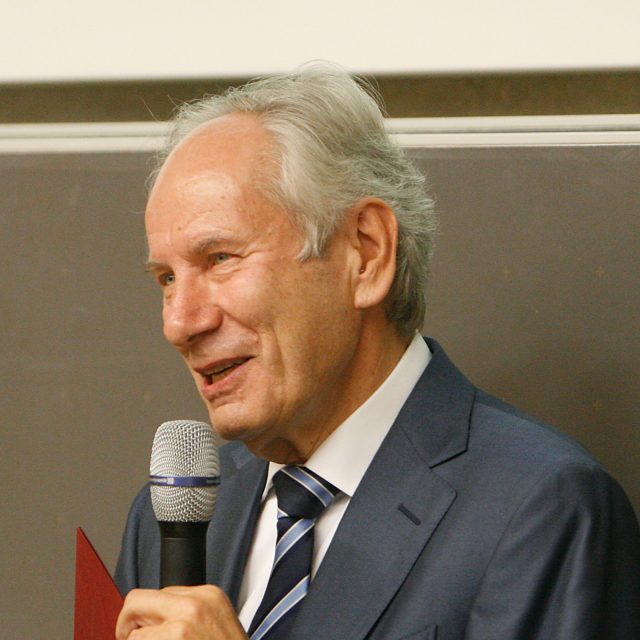
-
Horst Steinmann
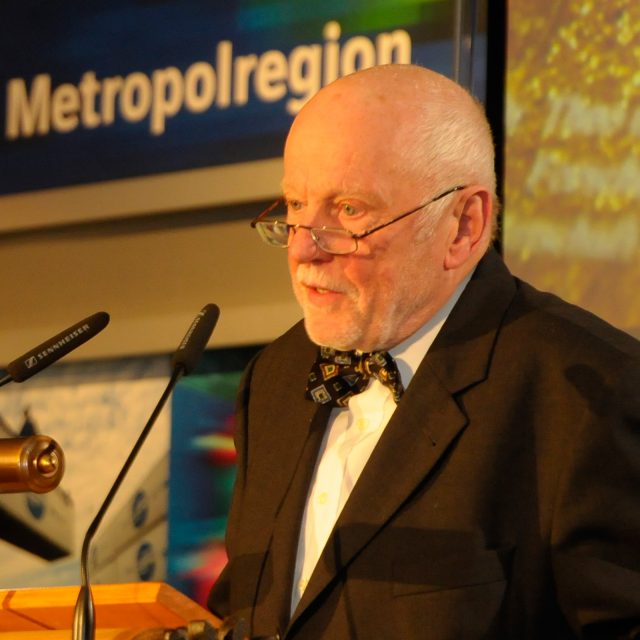
-
Jürgen Mittelstraß
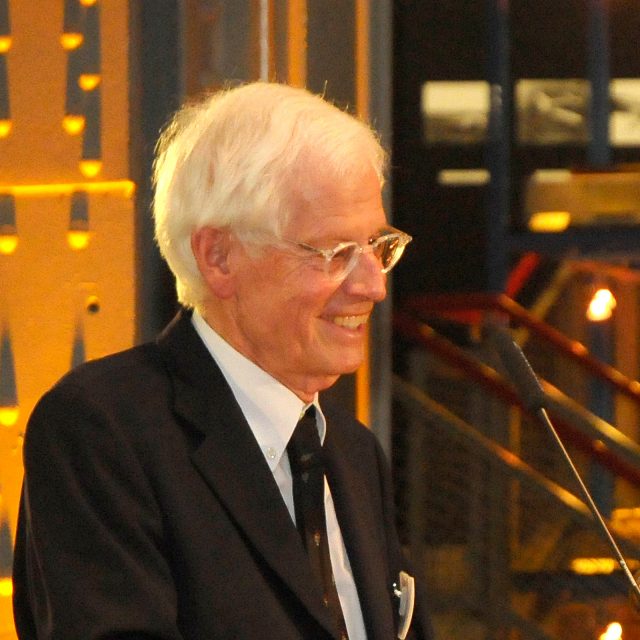
-
Peter Mertens
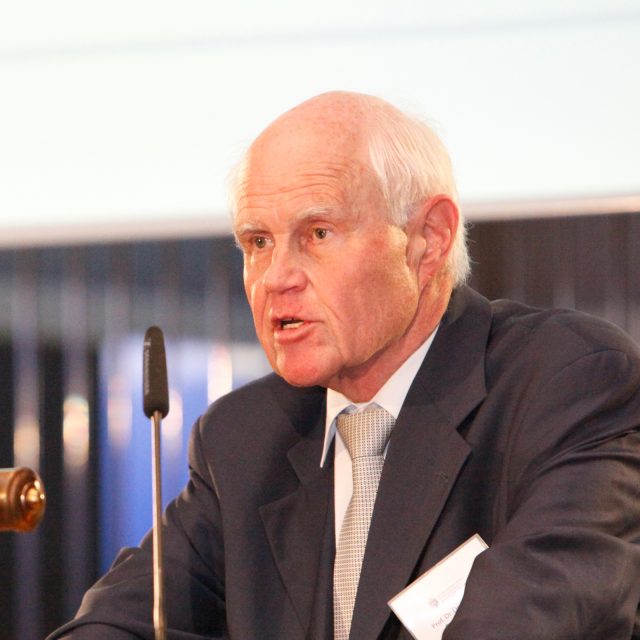
-
Hans-Jörg Bullinger
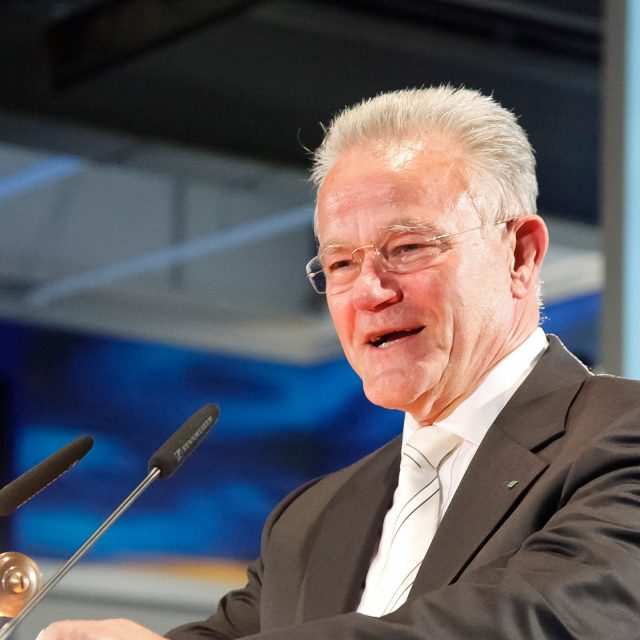
-
Helmut Haussmann
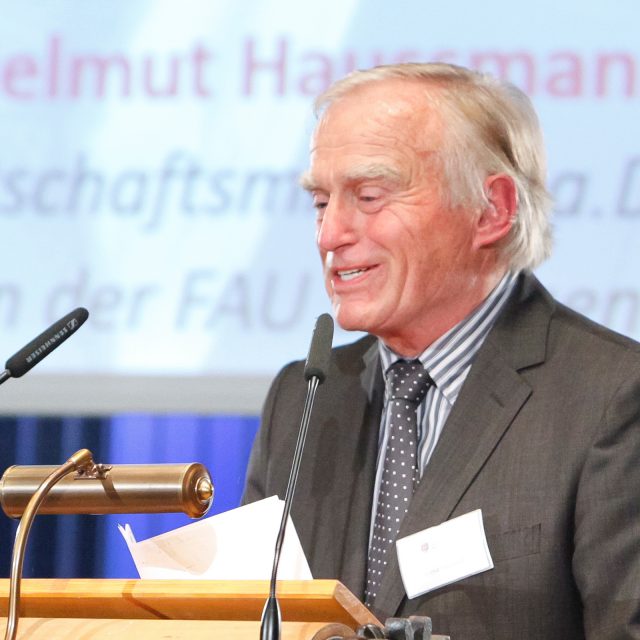
-
Karl-Dieter Grüske
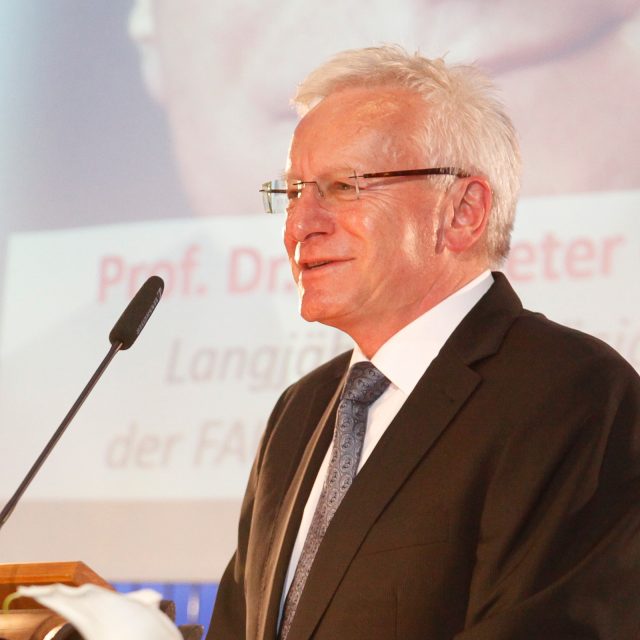
-
Frank-Jürgen Weise
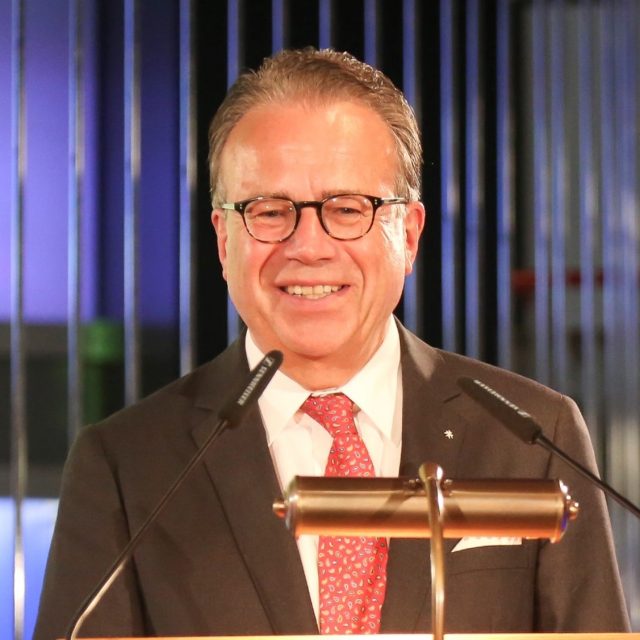
-
Thomas A. H. Schöck
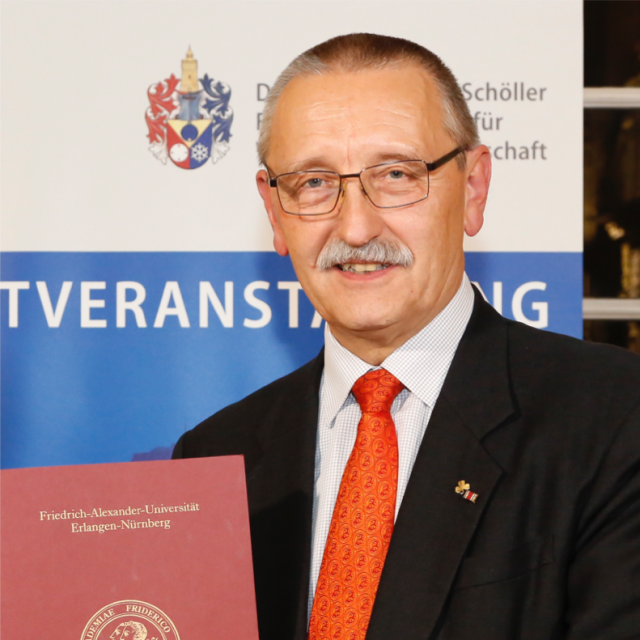
-
Alfred Estelmann
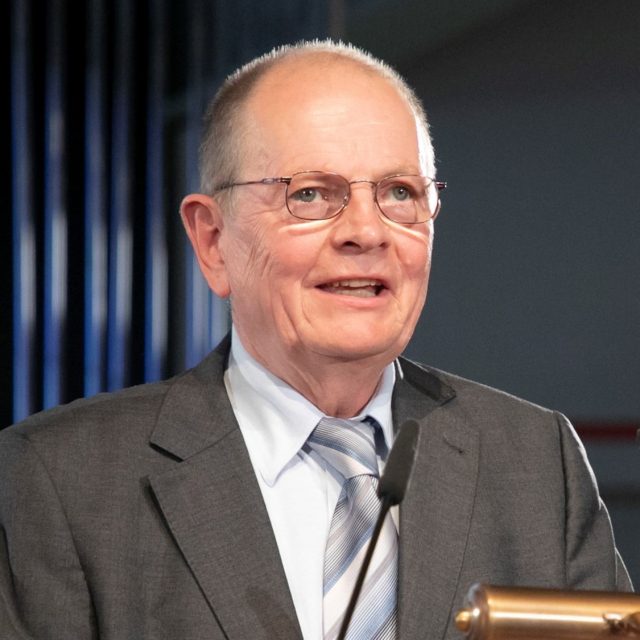
-
Evi Kurz

-
Walter Bockshecker
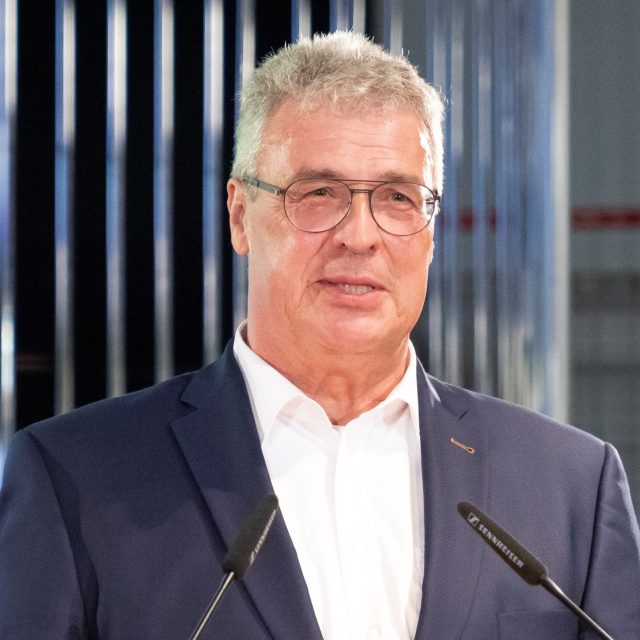
-
Otmar Issing
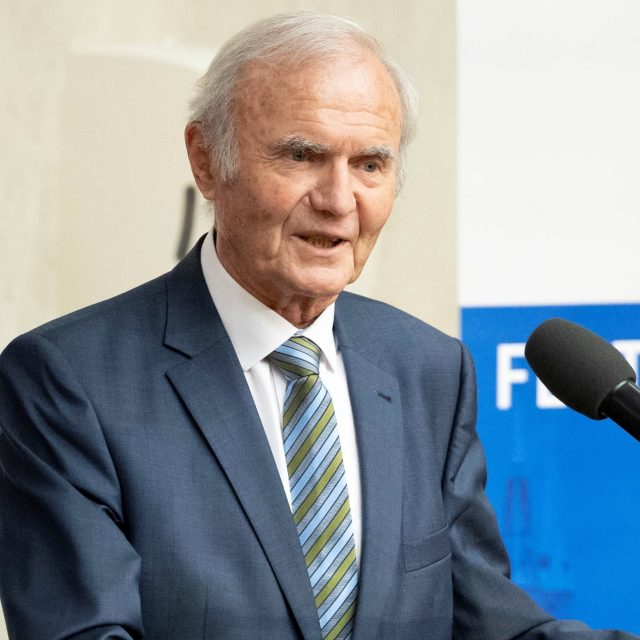
Prof. Dr. Dr. h.c. mult. August-Wilhelm Scheer, born on July 27th 1941, was director of the Institute for Information Systems (IWi) at the German Research Center for Artificial Intelligence (DFKI) at Saarland University from May 1979 until February 2005, with his major field of research being information and business process management in manufacturing, service industry and administration. Since March 2005, he is a consulting professor at DFKI.
In 1984, he founded the international software and consulting company IDS Scheer AG which maintains subsidiaries in 27 countries. In 1991, the book „ARIS Architektur integrierter Informationssysteme – Grundlagen der Unternehmensmodellierung“, which contains the basic design of the ARIS Toolsets developed by IDS, was released. In 1997, he founded IMC AG (Information Multimedia Communication AG) and is supervisory board chairman of both companies today.
In 1997, Professor Scheer was awarded the honorary doctorate of the Pilsen University (Czech Republic) for his scientific merits for the development of methods to design information systems and for the analysis of business processes. Since November 1999, he is the Saarland’s minister-president’s authorized representative for the fields of innovation technology and research.
In 2001, he founded the August Wilhelm Scheer foundation for science and art. In July 2001, he was awarded the Order of Merit of the Saarland by its minister-president. In October 2001, he was awarded an honorary doctorate by the Hohenheim University. In October 2003, he was named Entrepreneur of the Year in the category “Information Technology”.
In 2005, he was awarded the Erich-Gutenberg-Prize and the Federal Cross of Merit, First Class, of the Order of Merit of the Federal Republic of Germany. Since 2006, he is a member of the Advisory Board for Innovation and Growth of the Federal Republic of Germany. In 2007, he was elected president of the Federal Association for Information Technology, Telecommunications and New Media (BITKOM).
Prof. Dr. Dr. h.c. mult. Horst Steinmann, born 17 July 1934 in Bad Salzuflen, Lippe, graduated in 1962 at the TU Clausthal where he also habilitated five years later. Moreover, he obtained a Master’s degree in Business Administration with highest distinction at the Institut Européen d’Administration des Affaires (INSEAD) in 1965. In 1968, he became Chair of Operations Research at the Freie Universität Berlin. In 1970, he left for the University of Erlangen-Nuremberg where he took over the Chair of Management.
During his time at the University of Erlangen-Nuremberg, he received several offerings from various universities (Paderborn, Darmstadt, Freie Universität Berlin) but turned down all of them. Furthermore, he was conferred honorary doctorates by the Department of Economics at the University of Bern, Switzerland, in 1996 and the Robert Schumann University in Strasbourg, France, in 1999 for his widely noticed work in the field of Management and particularly in the field of Business Ethics. A large number of his graduate students, doctoral students, and post-doctoral students have become renowned researchers or practitioners.
Besides his appointment as university professor, he founded the European Business Ethics Network (EBEN) in 1986 and the German Business Ethics Network (DNWE) in 1993, whose president he was until 2000. Furthermore, he is a member of the US-based Academy of Management and Society for Business Ethics as well as of the German Academic Association for Business Research. He also officiated as deputy chairman for the latter from 1979 to 1980.
His research focus lies on the fields of Operations Research, Corporate Governance, Human Resource Management, Strategic Planning and Control, Organizational Theory, Business Ethics and Economic Theory. He continues to hold lectures and write articles. He published 300 papers and 25 books as a (co-)author or (co-)editor, respectively, many of which have been translated into Polish, Czech, Japanese, and Chinese.
Prof. Steinmann was honored with the Medal of Honor of the School of Business, Economics and Society.
Prof. Dr. phil. Dr. h.c. mult. Dr.-Ing. E.h. Jürgen Mittelstraß, born in 1936 in Düsseldorf, studied philosophy, German studies, and Protestant theology in Bonn, Erlangen, Hamburg, and Oxford. In 1961, he received his Ph.D. at the University of Erlangen-Nuremberg, where he habilitated in 1968. Two years later, he was appointed professor of philosophy and philosophy of science at the University of Konstanz. From 1990 to 2005, he was director of the Center of Science and Philosophy. Currently, he is the chairman of the Austrian Science Council in Vienna and also works as director of the Science Forum in Konstanz.
The philosopher and scientific theorist has been a member of several renowned academic institutions and academies. He was a member of the Academia Europaea (from 2002 to 2008 as president), the Science Council, the Senate of the German Research Council as well as the Council for Research, Technology, and Innovation to the Federal Chancellor. Furthermore, he was President of the General Society for Philosophy in Germany and a founding member of the German-American Council. In 2010, Professor Mittelstraß was appointed to the World Commission for Ethics in Science and Technology (COMEST), an advising organ of UNESCO.
From 2000 to 2007, he received honorary Ph.D. degrees from six prestigious national and international universities as well as the honorary senator degree at the University of Erlangen-Nuremberg. In addition, he was honored with the Leibniz Prize of the German Research Council and the Federal Cross of Merit 1st Class.
Professor Mittelstraß’ research deals mainly with questions from the general scientific theory, history of philosophy and science, epistemology, philosophy of language, and cultural theory. Influenced by the constuctivist concept of the Erlangen school of philosophy, he is considered one of the main founders and representatives of the Konstanz school of philosophy. Furthermore, he is the editor of the “Enzyklopädie Philosophie und Wissenschaftstheorie” (Encyclopedia of Philosophy and Philosophy of Science).
Prof. Dr. Dr. h.c. mult. Peter Mertens (born in 1937) studied industrial engineering at the Technische Hochschule Darmstadt, where he also did his doctorate in 1961. He then worked at the Technische Universität in Munich, the Johannes Kepler University in Linz as well as at the Massachusetts Institute of Technology (MIT). In 1966, Peter Mertens submitted the first habilitation paper in the German-speaking world on business informatics at the Technische Universität in Munich: “Inter-Company Cooperation and Integration in Automated Data Processing”. Subsequently, he worked as a CEO for a consultancy in Zurich.
In 1968, he hold the first chair in the German-speaking world, which concentrated on corporate information processing at the University in Linz. From 1970 until 2005, Peter Mertens was head of the Chair of Information Systems I at the School of Business and Economics at the University Erlangen-Nuremberg. At the same time, he was the director of the research group “Betriebliche Anwendungen” at the Faculty of Engineering. Since its foundation in 1999 until 2011, he taught at the “Bayerische Elite Akademie”.
Including the adapted editions and translations into Chinese, English, Italian and Russian, Peter Mertens published 77 books and nearly 600 articles in journals and edited books and volumes. His monograph “Integrierte Informationsverarbeitung 1: Operative Systeme in der Industrie” was released in 18 editions.
Peter Mertens was co-director of the Regional Computer Centre Erlangen for many years, member of the “Senatskommission für Rechenanlagen der Deutschen Forschungsgemeinschaft”, board member and chairman of the “Verband der Hochschullehrer für Betriebswirtschaft”, member of the presidium of the “Gesellschaft für Informatik”, and editor-in-chief of the journal WIRTSCHAFTSINFORMATIK.
Peter Mertens is fellow of the “Gesellschaft für Informatik”, honorary member of the “Verband der Hochschullehrer für Betriebswirtschaft” as well as honorary doctorate at the Universities in Augsburg and Bern, at the TU Darmstadt, the Otto Beisheim School of Management in Koblenz-Vallendar, and the University of Economics and Business in Vienna. He was honored with the Federal Cross of Merit, the Ring of Honor of the University of Economics and Business in Vienna, and the Medal of Honor of the School of Business, Economics and Society.
Prof. Dr.-Ing. habil. Prof. E.h. mult. Dr. h.c. mult. Hans-Jörg Bullinger, born in 1944, studied mechanical engineering (specializing in production engineering) and received his Ph.D. at the University of Stuttgart. In 1975, a year after his doctorate, he became head of the Fraunhofer Institute for Manufacturing Engineering and Automation (Fraunhofer IPA) in Stuttgart. After his habilitation, he was appointed Professor of Industrial Science/Human Engineering at the University of Hagen. In 1982, he was became Chair of Industrial Science and Technology Management at the University of Stuttgart. Hans-Jörg Bullinger was director of the Fraunhofer IAO from 1981 to 2002 and President of the Fraunhofer Society (Fraunhofer Gesellschaft) from 2002 to 2012. Since 2013, he is member of the Fraunhofer Senate.
The Otto Kienzle commemorative medal awarded by the German university association of production engineers (Hochschulgruppe Fertigungstechnik), the VDI gold award as well as the Arthur-Burkhardt-Prize are among Hans-Jörg Bullingers’s numerous national and international awards. Moreover, he received the Medal for Merit of Baden-Württemberg, the Grashof commemorative medal of the Association of German Engineers (VDI), the Leonardo European Corporate Learning Award in the category Thought Leadership as well as the Hans Peter Stihl prize. In 2009, he was selected Manager of the Year by the Manager Magazin.
Hans-Jörg Bullinger received honorary doctorates at the University Novi Sad (Serbia-Montenegro) and the Polytechnic University Temeswar (Romania) as well as the honorary professor at the University of Science and Technology of China in Hefei (China). He was honored with the Order of the Federal Republic of Germany, medal and ribbon for outstanding services to German science, industry and society (1998); the First Class Order of the Federal Republic of Germany (2003) for extraordinary services to German science and research; and the Order of merit of the Federal Republic of Germany for promoting the transfer of knowledge between science and industry (2006). In 2012, he received the Knight Commander’s Cross of the Order of Merit of the Federal Republic of Germany.
Prof. Dr. Helmut Haussmann, born in 1943 in Tübingen, studied economics and social sciences in Tübingen, Hamburg, and Nuremberg. After he finished his diploma studies in 1968, he became the executive director of the company Berninger & Spilcke KG in Bad Urach. From 1971, he was Assistant Researcher at the Chair of Business Management at the FAU Erlangen-Nuremberg where he received his Ph.D. in 1975.
Helmut Haussmann’s political career started in 1975 when he became town councilor in Bad Urach and regional chairman of the Free Democratic Party (FDP) in Reutlingen. As a member of the German Bundestag (1976-2002) and secretary general of the FDP (1984-1988), Helmut Haussmann was appointed Minister of Economics of the Federal Republic of Germany from 1988 to 1991. From 1991 to 2002, he became a member of the Federal Committee on Foreign Affairs and a Speaker for European Affairs of the FDP in the German Bundestag. Currently, he is a representative of the Cabinet of Germany in the Board of the Asia-Europe-Foundation (ASEF), Singapore.
Since 1991, Helmut Haussmann is Vice President of the international IT- and consulting firm Capgemini in Berlin. He is a member of various national and international committees and advisory boards. Helmut Haussmann is honorary professor at the Chair of International Management at the FAU Erlangen-Nuremberg. His research focuses on the role of medium sized companies in the process of globalization. Moreover, he is a guest professor for International Business at the Eberhard-Karls-University Tübingen. Since 2021, he is on the board of trustees of the Bundeskanzler-Helmut-Kohl-Stiftung (Federal Chancellor Helmut Kohl Foundation).
Since 1996, he is a a member of the board of trustees of the Friedrich-Naumann-Foundation and the Theodor-Heuss-Haus-Foundation. Helmut Haussmann is Commander of the French Legion of Honor and was honored with the Order of Merit of the Federal Republic of Germany and the Medal of Honor of the FAU Erlangen-Nuremberg. He is honorary chairman of the Reutlingen County Chapter of the FDP and since 2022 honorary citizen of the city of Bad Urach.
Prof. Dr. Karl-Dieter Grüske, born 1946 in Erlangen, studied economics in Erlangen/Nuremberg (FAU) and Munich. From 1972 to 1988, he was assistant and associate professor under Prof. H.C. Recktenwald in the Department of Economics at the Faculty of Business Administration, Economics and Social Sciences at FAU. In 1978, he completed his doctoral thesis “summa cum laude” on distribution effects of public budgeting. For his habilitation thesis in 1986 he received both an FAU award and the prestigious Wolfgang-Ritter-Preis (Bremen). In 2010, Karl-Dieter Grüske was awarded the Order of Merit by the Federal President of Germany. In 2015, he was awarded the Medal of the Bavarian Constitution.
During research stays abroad, he spent time in Indonesia (1974), Yemen (1982), China (1985) and the USA (1987). From 1988 to 1990, he was academic project manager under Prof. Meinhard Miegel at the Bonn Institute for Economics and Social Research. In 1990, he was offered a chair at the Bundeswehr University, Hamburg. In 1991, he accepted the Chair of Public Finance at FAU. He is a member of all the important societies and associations in his discipline, and has published three books and numerous scientific papers and is co-editor of the renowned ‘Klassiker der Nationalökonomie’ (Classics of Political Economy), among other works.
Due to his vast knowledge and experience, Karl-Dieter Grüske is a valued member of numerous committees. In 1993, he was appointed as a member of the Advisory Council for Family Affairs at the Federal Ministry for Family Affairs, Senior Citizens, Women, and Youth, a position which he held until 2010. From 1997 to 2000, he was a member of the Advisory Council for Administrative Reform of the Hessian Ministries and Universities; he has also been involved in several other committees for university reforms and a member of the standing committees for economics and education economics in Verein für Socialpolitik (German Economic Association). From 1999 to 2003, he also acted as a member of the Advisory Council of the German Institute for Youth in Munich. During the years 1993 to 2006, he served as chairman of the Gesellschaft für Finanzwissenschaftliche Forschung (Society for Research in Public Finance). In 2008, he became honorary professor of the University for International Business and Economics in Beijing. He was a member of the DAAD’s Board of Trustees from 2012 to 2015.
Between 1994 and 1996, Karl-Dieter Grüske was dean of the Faculty of Business Administration, Economics and Social Sciences, from 1996 to 2000, he served on the Senate, and from 2000 to 2002 as prorector of the University. From April 2002 to March 2015, he was rector and then, after the office was renamed in 2010, president of FAU Erlangen-Nuremberg. After two years as deputy speaker, he was chairman of Universität Bayern e.V from 2009 to 2011. He was vice president for research of the German Rectors’ Conference (HRK) from 2008 to 2014.
Since his retirement on 1 April 2015, he has continued to fulfil a variety of roles, including as chairman of the Advisory Board for Research Migration at the Federal Office for Migration and Refugees, vice president of the Virtual University of Bavaria, and a member of the HRK’s Executive Board, the Board of Trustees of the Max Planck Institute for the Science of Light, the Advisory Board of the Fraunhofer Institute for Integrated Circuits IIS, various HRK commissions, the Advisory Board of Sparkasse Nuremberg and two supervisory boards, and as honorary chairman of the Confucius Institute Nürnberg-Erlangen. He also acts as a reviewer (e.g. in evaluation committees) and as a speaker on higher education policy.
From 2004 until 2017, Dr. h.c. Frank-Jürgen was CEO of the German Federal Agency for Employment and, from 2015 until 2016, he also headed the Federal Office for Migration and Refugees.
He started his professional career in the German Bundeswehr in 1972, where he was trained as an army officer and studied business administration. As company commander (parachutist), he also acted as a youth officer. As reserve officer, he was battalion commander, deputy regimental commander, and deputy in the NATO staff in Brussels with many foreign missions as well as a Deputy Inspector General of the Bundeswehr for recruitment. He currently holds the rank of a reserve colonel.
From 1985, Weise was Controller at the VDO Adolf Schindling AG and from 1989, chairman of the management at the Braunschweiger Hüttenwerk GmbH. He then served as Managing Director of the Societät für Unternehmensplanung in Frankfurt and Basel. From 1997, he was a member of the Executive Board of FAG Automobiltechnik AG in Schweinfurt and, in addition, director of human resources for the executives of the global FAG Group. Weise was co-founder, then CEO of the company Microlog Logistics AG in Frankfurt, which was later sold to the DELTON Holding of Stefan Quandt.
In 2002, he was appointed to the executive board of the German Federal Agency for Employment and was responsible for finance, human resources and information technology. In 2004, he was appointed CEO and resigned from office at the end of March 2017.
In 2010, he was head of the Commission on Structural Reform of the German Bundeswehr. At the end of 2015 until 2016, Weise also headed the Federal Office for Migration and Refugees. In 2017, he was Federal Government Commissioner for Refugee Management.
Weise is a board member of the Post-Foundation, the IZA (Institut der Zukunft der Arbeit, Institute of Labor Economics), the KPS Capital GmbH and Odewald SME II. In addition to his work as a partner at Rantum Capital GmbH, Frankfurt and the company KPS New York, he is Senator of the Deutsche Nationalstiftung (German National Foundation), Chairman of the Board of the non-profit Hertie Foundation and Honorary President of the Johanniter-Unfall-Hilfe.
Dr. Thomas A. H. Schöck studied economics and law from 1968 to 1974 at the Universities Erlangen-Nuremberg and Heidelberg after completing his training as an assistant in auditing and tax consulting. After working for several years as a research assistant and assistant at the University Erlangen-Nuremberg, he joined the Bavarian State Ministry of Finance and the Bavarian State Chancellery in 1980, most recently as head of the department “Cabinet Affairs, Public Budget and European Community”. In addition, he was a lecturer of tax law. On October 1, 1988 he was appointed chancellor (head of the university administration, commissioner for the budget, member of the university management) of the Friedrich-Alexander University Erlangen-Nuremberg (FAU) and retired on June 15, 2014. Until September 30, 2016 he was managing director of FAU Busan GmbH.
He was chairman of the working groups “Problems of University Medicine” and “Employee Invention Law, EU Matters and Third-party Funding Issues” as a spokesman for the chancellors of the German universities as well as founding member and board member of the Center for Science Management. From 1996 to 1999, he was spokesman for the chancellors of the Bavarian universities, from 1999 to 2000 deputy federal spokesman and from 2000 to 2003 federal spokesman for the chancellors of the German universities. From 2004 to 2013, he was chairman of the Administrative Board of the Studentenwerk Erlangen, from 2010 to 2015 member of the Executive Board of the Licensing Executive Society (LES) Germany, from 2013 to 2018 chairman of the Supervisory Board of Weller Brauerei eG (Weller Brewery).
He is currently chairman of the Board of Trustees of the Windsbach Boys Choir, the Board of Trustees of the Nuremberg University of Music, the “Partnerschaftsverein Erlangen-Riverside” (sister city society of Erlangen and Riverside) as well as the “Förderverein Wassersportzentrum Pleinfeld” (Pleinfeld Water Sport Center Society) of the FAU, vice-chairman of the “Stiftung Ludwig Erhard-Haus“ (Foundation Ludwig Erhard-House) and the society “Freunde Fränkischer Sommer” (Friends of the Franconian Summer Music Festival), member of the Supervisory Board of the “Internationale Gluck Opernfestspiele gGmbH” (International Gluck Opera Festival), the “Evangelische Landessynode” (Evangelical Regional Synod) and the Board of Trustees of the “Diakonie Neuendettelsau” (Diaconia Neuendettelsau).
He was honored with the Order of Merit of the Federal Republic of Germany, the “Goldenes Kleeblatt” (Golden Cloverleaf) of the City of Fürth, the Medal of Merit of the German Student Union, and the Equal Opportunities Prize of the FAU. Since 2015, he has been honorary senator and since 2020 honorary doctor of FAU.

Alfred Estelmann
Dr. med. Dipl.-Kfm. Alfred Estelmann (born 1952) was chairman of Klinikum Nürnberg’s Executive Board. Klinikum Nürnberg is a maximum medical care hospital and one of the largest municipal hospitals in Europe.
Estelmann completed his apprenticeship in his parents’ bakery, where he passed his apprenticeship certification exam in 1974. His involvement in the ambulance service sparked his interest in the medical profession. From 1973, he studied business administration at the School of Business, Economics and Society (WiSo) in Nuremberg. In 1975, he got a place at FAU and started his study of human medicine in Erlangen. After completing his preliminary (medical) examination, a research project in emergency medical services led him back to business administration. In 1980, he passed the diploma examination for business administration. At the Computer Center of FAU he got to know the team of the Clinical Cancer Registry of the Surgery Department of Universitätsklinkum Erlangen, which he supported in setting up a hospital-wide identification of tumor and cancer patients. In 1982, he graduated in human medicine.
His medical work began in 1983 at the Children’s Department of Klinikum Nürnberg. From 1985, he simultaneously worked in project groups dealing with integrated data processing and quality management. In 1996, he moved to the Organization Office of the City of Nuremberg, which coordinated the transformation of Klinikum Nürnberg into an independent municipal enterprise. In 1998, he became “Head of Department Medical Service Providers” and a member of the management of the Klinikum. In 2002, he was appointed to deputy chairman of the Klinikums’s Executive Board. Following the purchase of Krankenhäuser im Nürnberger Land gGmbH by Klinikum Nürnberg, he took over its management in 2006. In September 2007, he was appointed to chairman of Klinikum Nürnberg’s Executive Board. He held this position until 2017. During this time, a location of the Salzburg Paracelsus Medical Private University was founded at Klinkum Nürnberg. Since 2014, it has offered the complete study of human medicine in Nuremberg.
From 2002, Estelmann worked in the working group of large municipal hospitals, most recently as its board member (2017). Simultaneously, he represented the hospital in the Conference of Municipal Hospitals in the German Association of Cities, which he presided in 2016 and 2017. Since December 2018, he has been a member of the Supervisory Board of A.R-Z.-Ambulantes Rehabilitationszentrum Nürnberg gGmbH.
Since 1994, Estelmann has been a member of the N-FÜ-ER regional group of the IPPNW, which since 1996 has organized congresses under the motto “Medicine and Conscience” at which current developments in the health care system are analyzed in the light of the Nuremberg Doctors’ Trial and alternative courses of action are presented.

Evi Kurz
Evi Kurz was born in Fürth, where she also graduated from high school. After two state exams for teaching at secondary schools, she worked full-time as a news anchor and television journalist at the channel Bayerisches Fernsehen, where she already had presented the new program “Frankenschau” between her exams. This was followed by programs from the Studio Freimann, such as “Abendschau” or “Jetzt red i” and, in 1979, the first edition of the new news program “Rundschau”. For many years, Evi Kurz was part of the permanent team of the “Rundschau” newscasters. For the Erlangen-based perimed publishing house, she hosted “puls”, a program for general practitioners and internists in Germany, Austria, and Switzerland, for many years
In 2003 Evi Kurz founded her film production company TLF-Timelinefilm GmbH and produced “The Kissinger Saga”. The movie about Henry Kissinger and his one year younger brother Walter was also very successful in the US cinemas. “The Kissinger Saga” was also published as a book in German and English. Other major international film productions followed, such as “The Bridge Builders – Henry Kissinger, Fritz Stern and Lord George Weidenfeld. Jewish Emigrants and Reunification” and film biographies about the entrepreneur Karl Diehl. All films were broadcasted on ARD.
Since 2005, Evi Kurz has been director of the Ludwig-Erhard-Initiativkreis Fürth e.V. and since 2013, chairwoman of the Foundation Ludwig-Erhard-Haus. Under Evi Kurz’s leadership, the Ludwig Erhard Zentrum (LEZ), a center for documentation, exhibition, encounter, and research for Ludwig Erhard and his concept of the social market economy, was established in Fürth. The 18-million Euro project was inaugurated in 2018 by German President Frank-Walter Steinmeier and Minister President of Bavaria Markus Söder. In June 2022, the center will be completed by a research institute: A cooperation of the Ludwig Erhard Haus Foundation with FAU and the Munich-based ifo Institute. The ifo Institute establishes its own branch in the LEZ in Fürth.
Evi Kurz was awarded the Golden Citizens’ Medal of the City of Fürth in 2010, the Finance Medal of the Bavarian State Ministry of Finance in 2015, and the Bavarian Order of Merit in 2019. In 2023, she became honorary citizen of FAU Erlangen-Nürnberg.

Walter Bockshecker
After studying Business Education at the University of the Bundeswehr Munich, Walter Bockshecker spent seven years in various positions with the Bundeswehr.
In 1990, he joined the Berufsbildungswerk der Deutschen Versicherungswirtschaft (BWV, Vocational Training Center of the German Insurance Industry), where he most recently held the position of executive board member. In addition, he served for three years as founding and chief executive officer of the Deutsche Versicherungsakademie (DVA, German Insurance Academy). During this time, he was chairman of the supervisory board of an IT start-up and a member of central committees of the German Insurance Association, the Employers’ Association of Insurance Companies in Germany, and the Association of German Chambers of Industry and Commerce.
Since 2004, he has been a member of the executive boards of NÜRNBERGER Versicherung (German insurance company headquartered in Nuremberg), responsible for human resources and social affairs, and in 2022 also for IT. During this time, he held several mandates as chairman of supervisory boards and boards of directors at subsidiaries of NÜRNBERGER Versicherung.
In an honorary capacity, he was chairman of the board of the Berufsbildungswerk Nordbayern-Thüringen (Vocational Training Center Northern Bavaria-Thuringia), a member of the board of the Berufsbildungsverband der Versicherungswirtschaft (VBV, Vocational Training Association of the Insurance Industry), deputy chairman of Forum V (North Bavarian Institute for Insurance Science and Economics at FAU Erlangen-Nürnberg), and a member of the University Council of FAU Erlangen-Nürnberg. He is currently a member of the supervisory board of NÜRNBERGER Beteiligungs-AG. In 2023, he became honorary senator of FAU Erlangen-Nürnberg.
Prof. Dr. Dr. h.c. mult. Otmar Issing is Honorary President of the Center for Financial Studies since 2022.
From 2006 to 2022, Prof. Issing was President of the Center for Financial Studies and Chairman of the Board of Trustees of the Gesellschaft für Kapitalmarktforschung e.V. From 2006-2022, he was Chairman of the Board of Trustees of the House of Finance at Goethe University Frankfurt. From 1998 to 2006, Prof. Issing was a Member of the Executive Board of the European Central Bank (ECB), responsible for the Directorates General Economics and Research. Until 1998 he was a Member of the Board of the Deutsche Bundesbank with a seat on the Central Bank Council. From 1988 to 1990, he was a Member of the German Council of Economic Experts.
At the University of Würzburg, Prof. Issing was Professor of Economics, Monetary Affairs and International Economic Relations (1973-1990). At FAU Erlangen-Nürnberg, he held a full professorship from 1967 to 1973 and was Director of the Institute for International Economic Relations.
Prof. Issing was a Member of the G20 Eminent Persons Group on Global Financial Governance, which was formally established by G20 Finance Ministers and Central Bank Governors for the period of 2017-2018. He chaired the Advisory Council on a New Financial Order appointed by German Chancellor Angela Merkel (2008-2010). He also was a member of the High Level Group of the European Commission chaired by J. De Larosière (2008-2010), an International Advisor to Goldman Sachs (2007-2018), and served on the Supervisory Boards of Nürnberger Lebensversicherung AG (2006-2018) and Fürst Fugger Privatbank (2007-2018).
Prof. Issing has received numerous awards and prizes over the course of his career: In 2006 he was awarded the Great Cross of Merit of the Federal Republic of Germany. In the same year he was made Grand Officer of the Order of Merit of the Grand Duchy of Luxembourg and received the Ludwig-Erhard Prize for Economic Journalism. In 2007 he was presented with the Silver Insignia of the City of Würzburg, his home city. In 2005 he was awarded the Hans Möller Medal of the University of Munich; in 2004 the Bernhard Harms Medal of the Institute for World Economics, Kiel; and in 2003 the International Prize of the Friedrich August von Hayek Foundation. He received the Laurea Honoris Causa in International Economic Integration from the University of Pavia in 2010, and the Gustav Stolper Award of the Verein für Socialpolitik (German Economic Association) in 2011.
Issing was granted honorary professorships from Goethe University Frankfurt (2007) and the University of Würzburg (1991) and honorary doctorates from the Universities of Frankfurt (1999), Konstanz (1998) and Bayreuth (1996). In 2016 the University of Würzburg appointed him Honorary Senator. In 2017 he received the Emperor Charles IV European Medal (Europa-Medaille Kaiser Karl IV).
In addition to numerous articles in scientific journals and periodicals, Prof. Issing’s publications include two textbooks, “Einführung in die Geldtheorie” (Introduction to Monetary Theory), fifteenth edition 2011, and “Einführung in die Geldpolitik” (Introduction to Monetary Policy), sixth edition 1996. His book “Der Euro – Geburt, Erfolg, Zukunft” (The Birth of the Euro) was published in German and English in 2008, followed by a Chinese edition in 2011.
Prof. Issing is or was a member of the following institutions: Verein für Socialpolitik (German Economic Association), American Economic Association, Akademie der Wissenschaften und der Literatur (Academy of Sciences and Literature, as a Corresponding Member from 1989-1991), Academia Scientiarum et Artium Europaea, Walter Eucken Institute, Executive Committee of the Institute for European Affairs (INEA), Euro50 Group, Council for the Future of Europe (Nicolas Berggruen Institute), Advisory Board of the Globalization and Monetary Policy Institute (Federal Reserve Bank of Dallas, until 2016), International Advisory Council of Bocconi University, Milan (until 2015), Honorary member of the Ludwig Erhard Foundation (2021).
